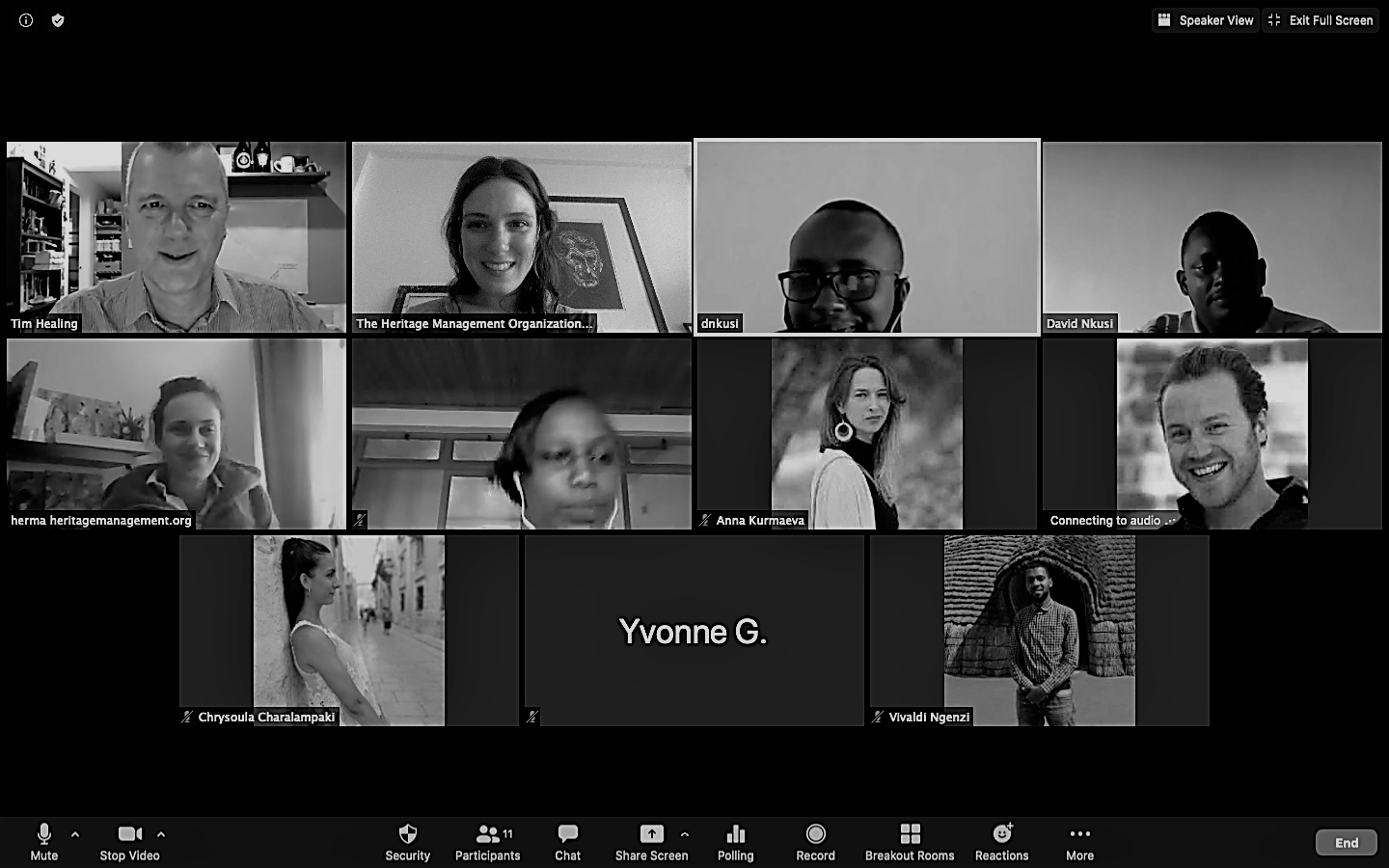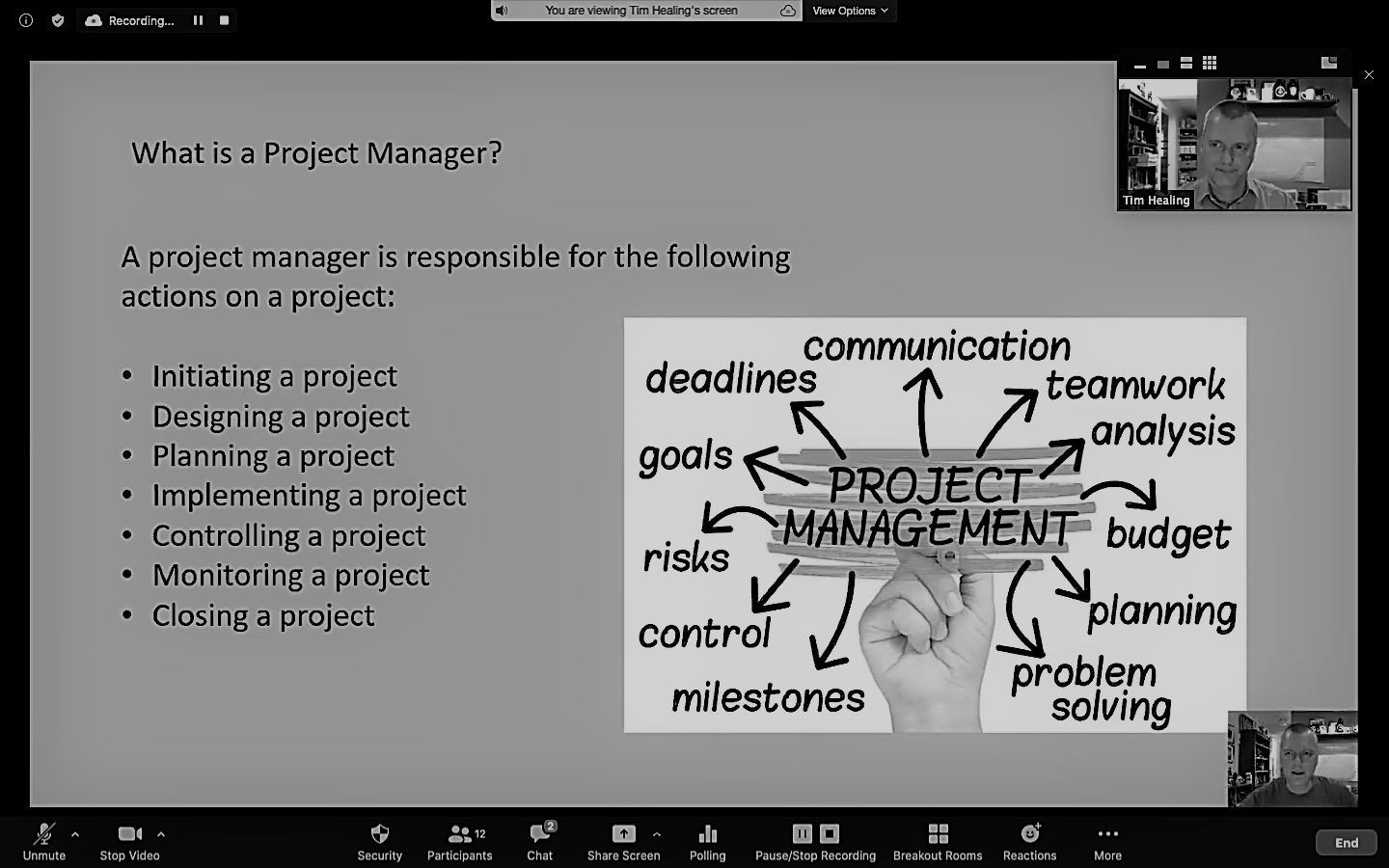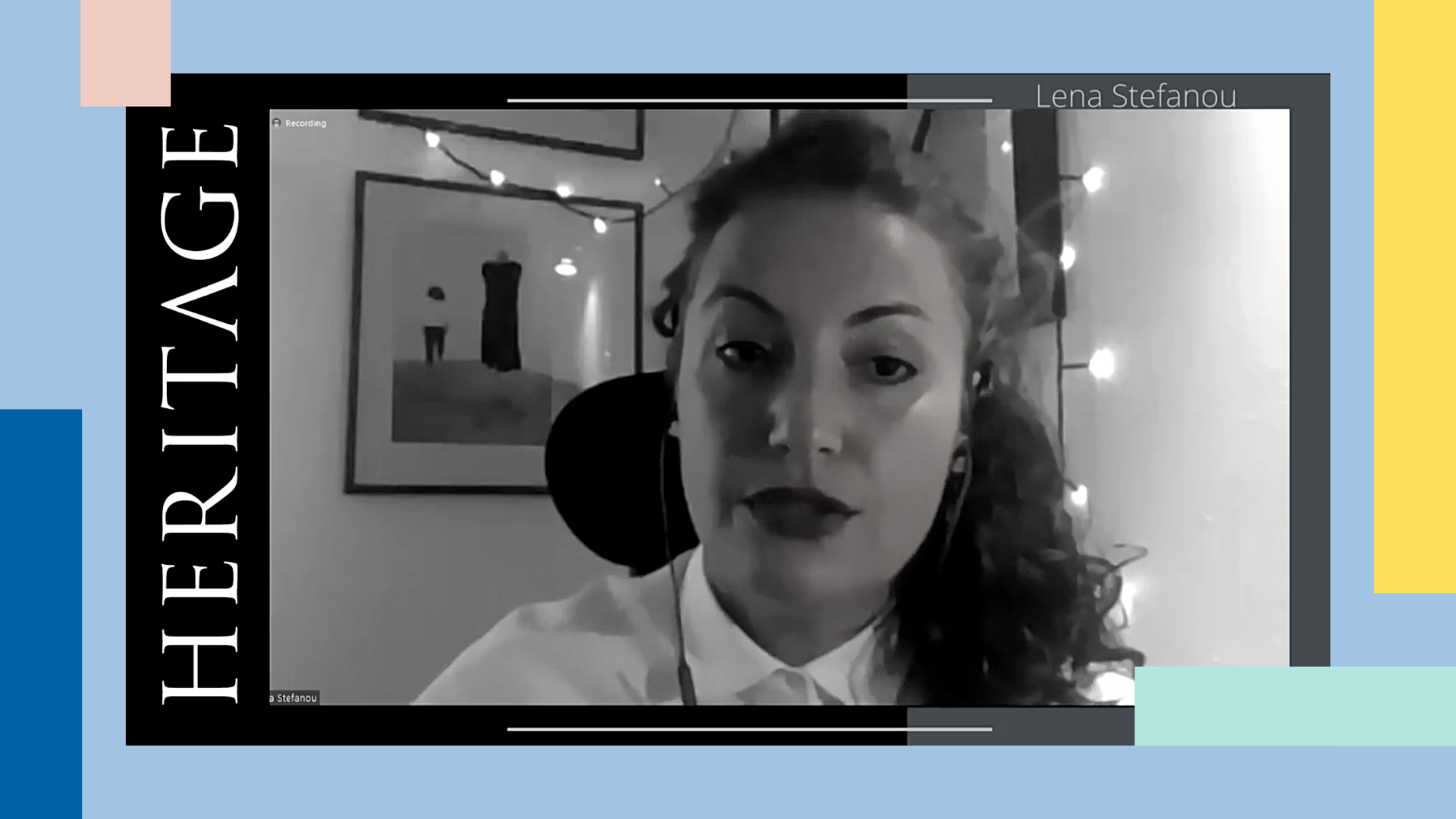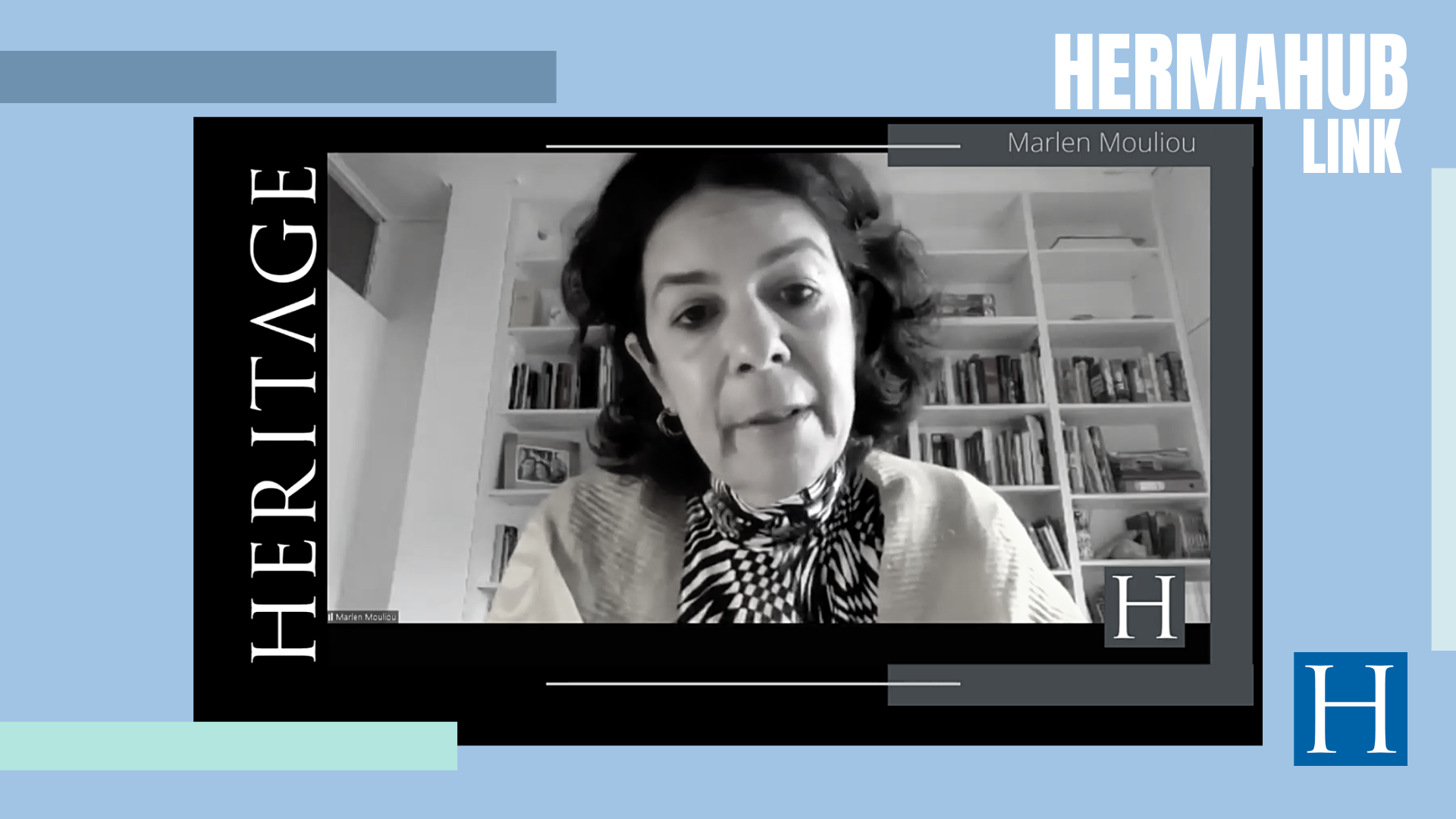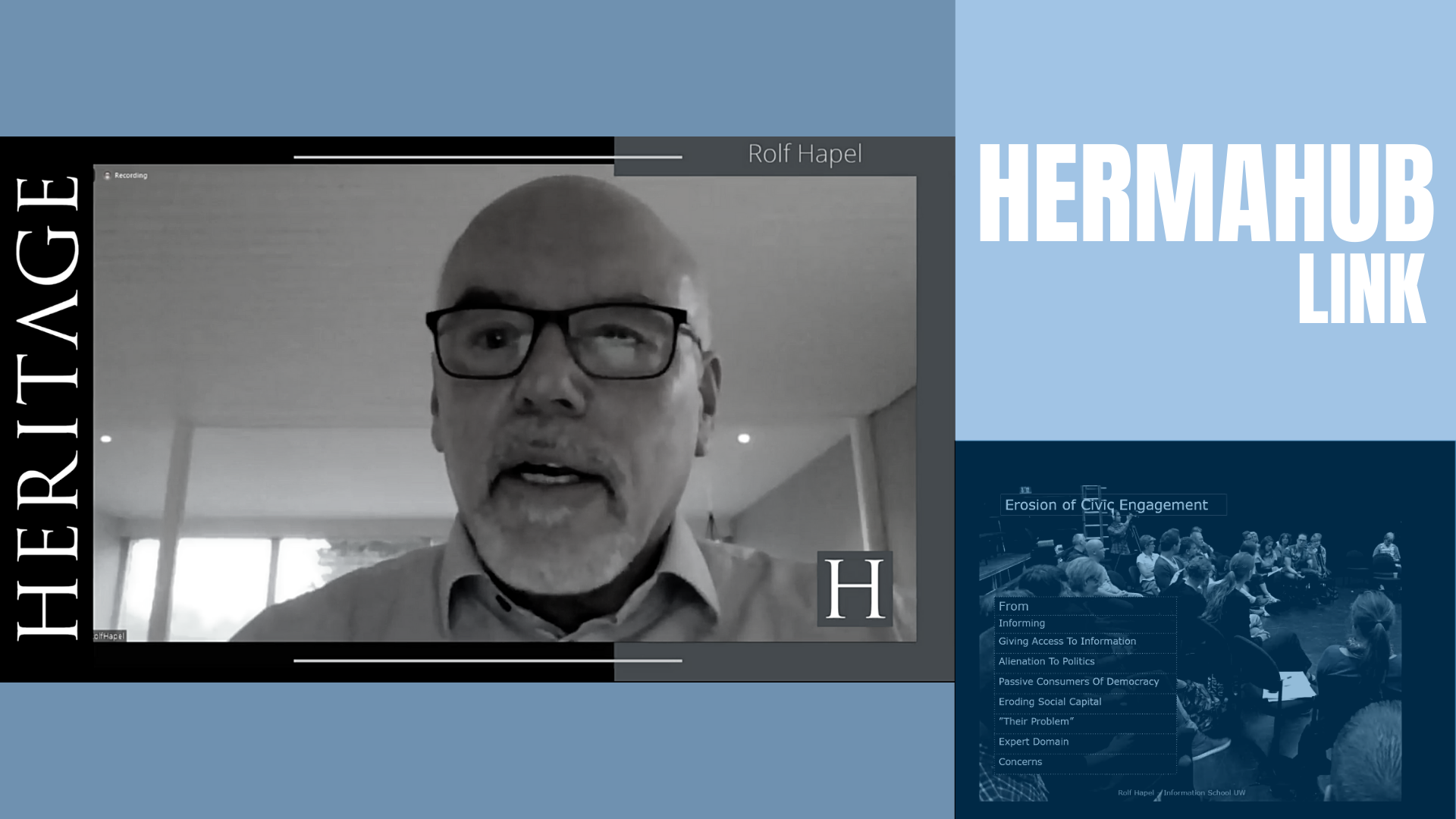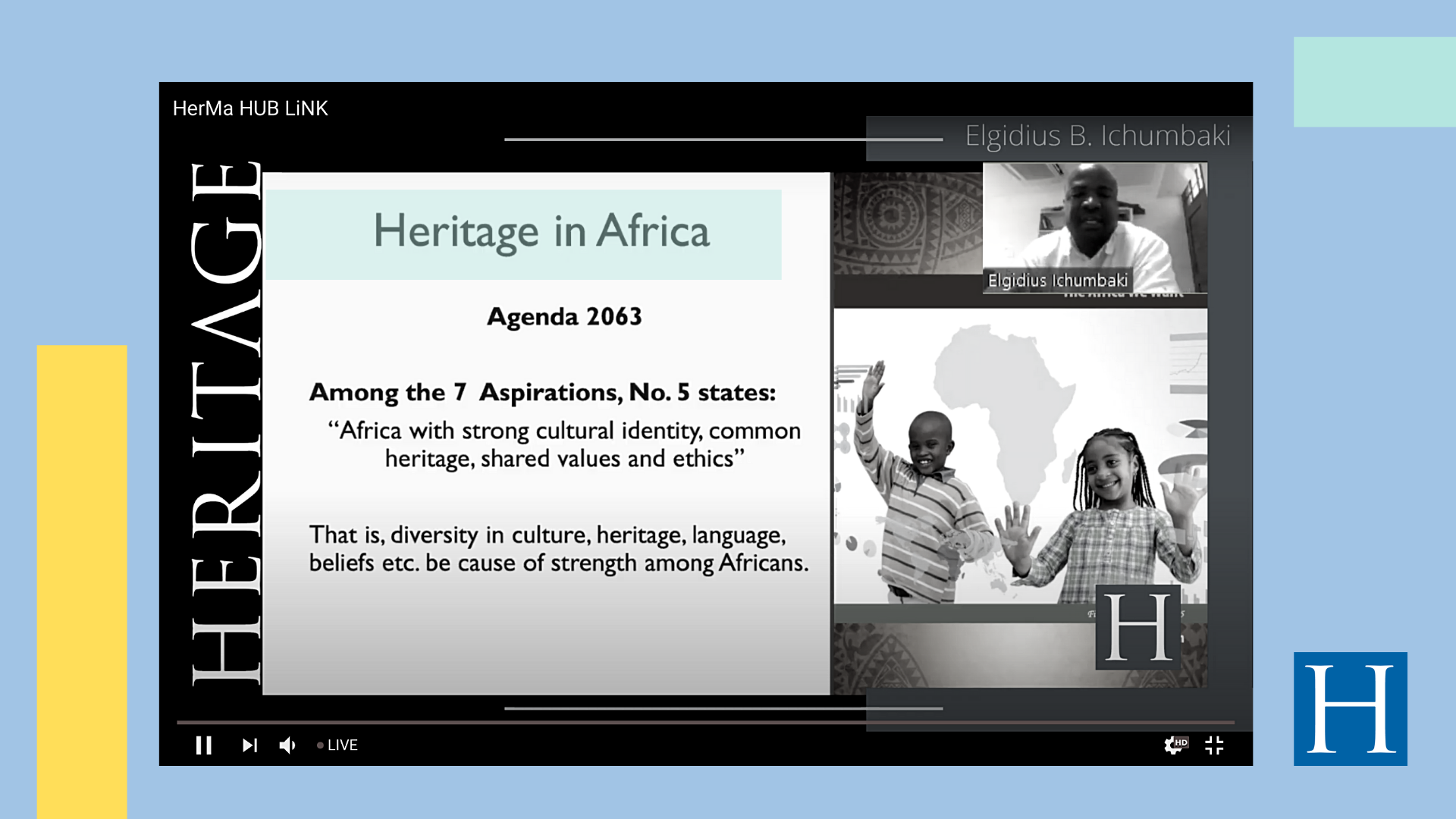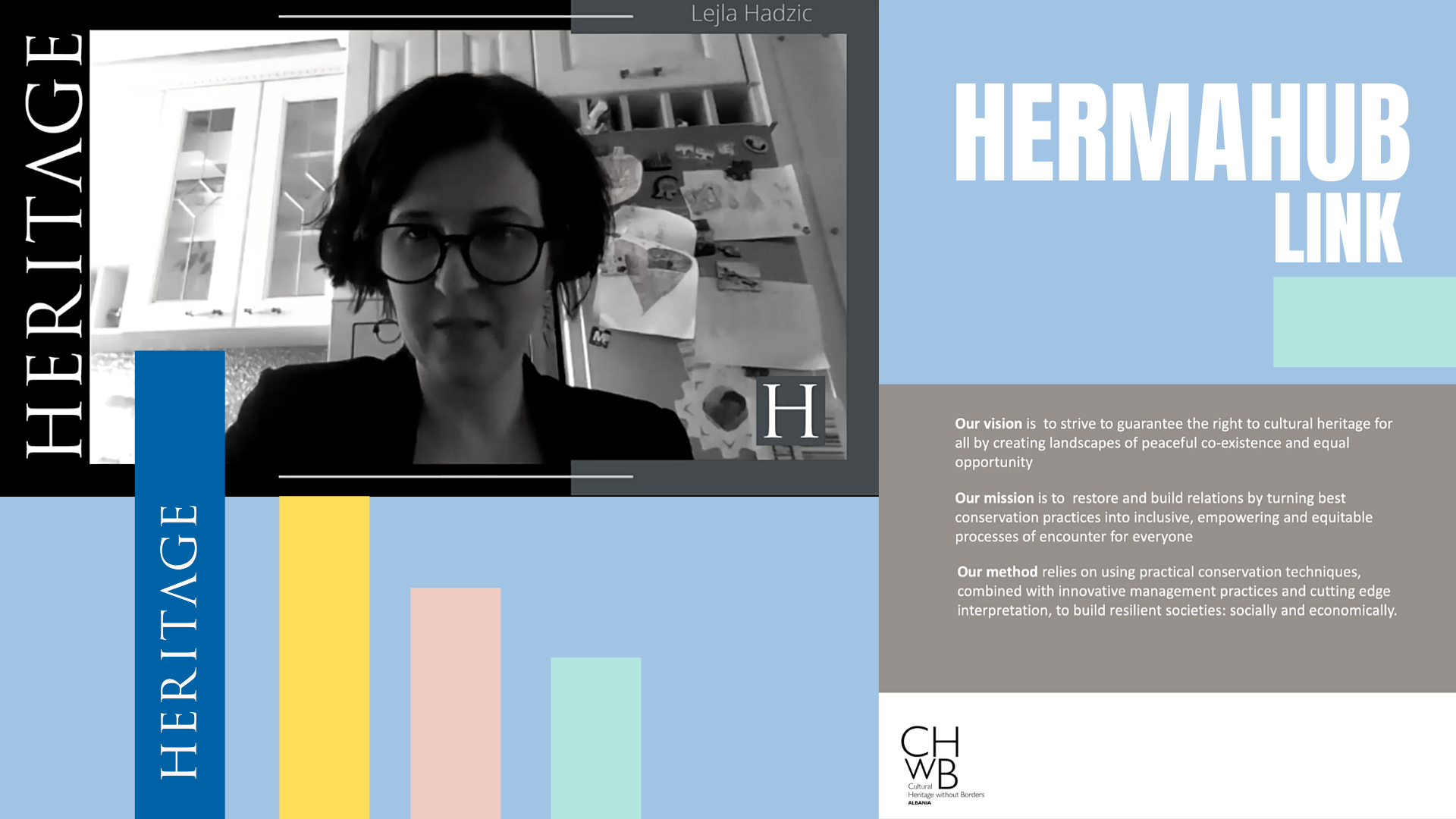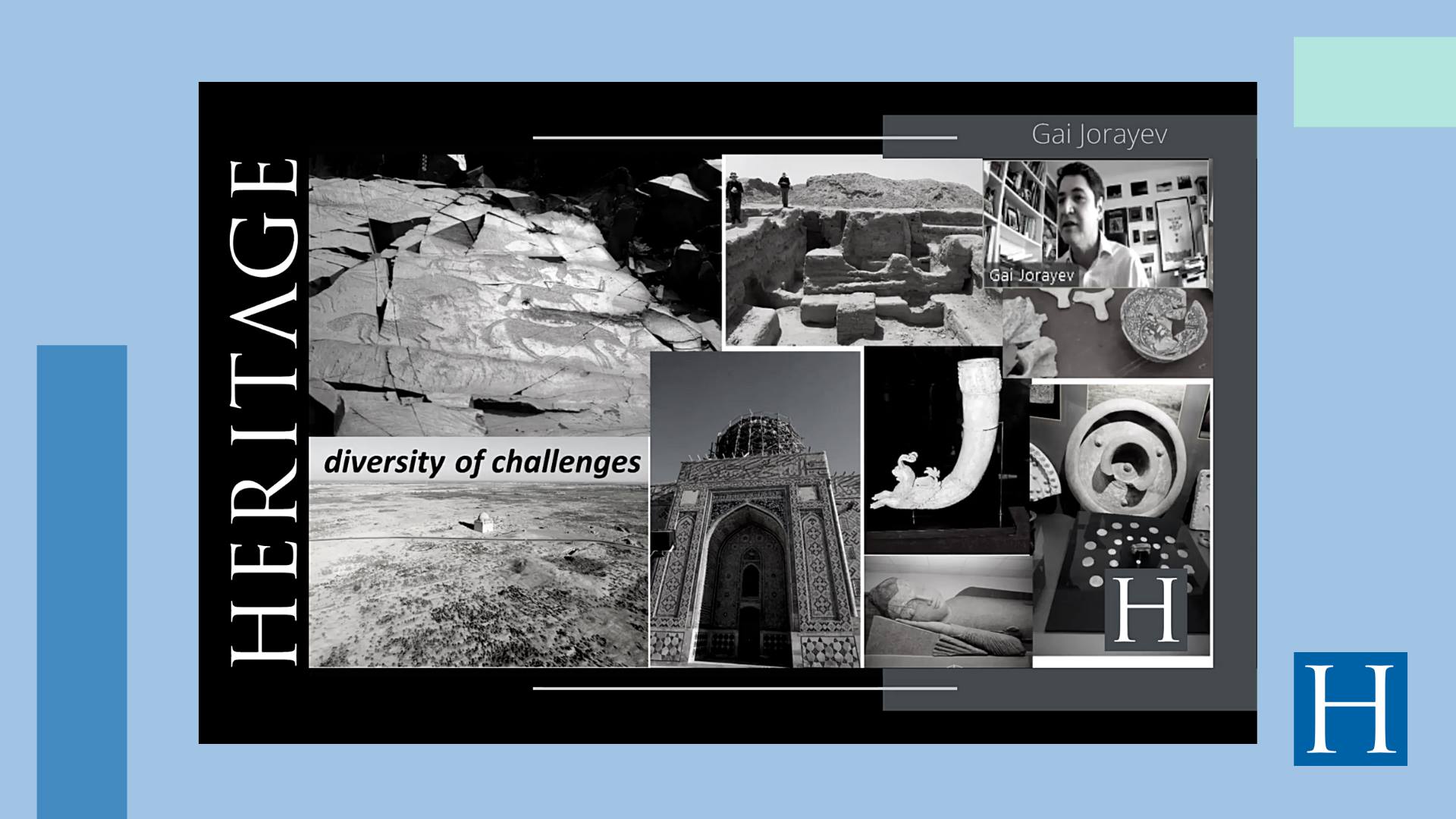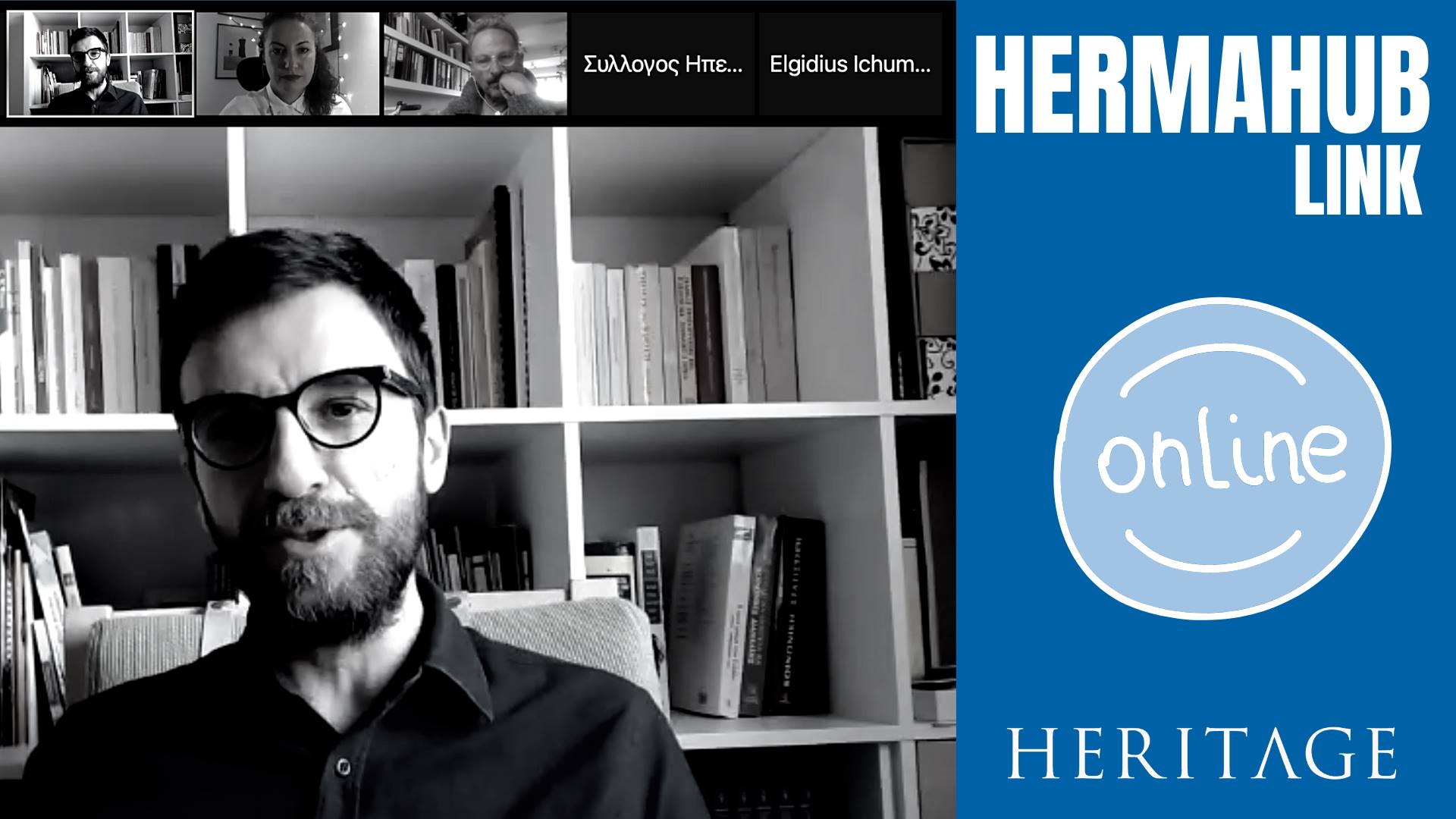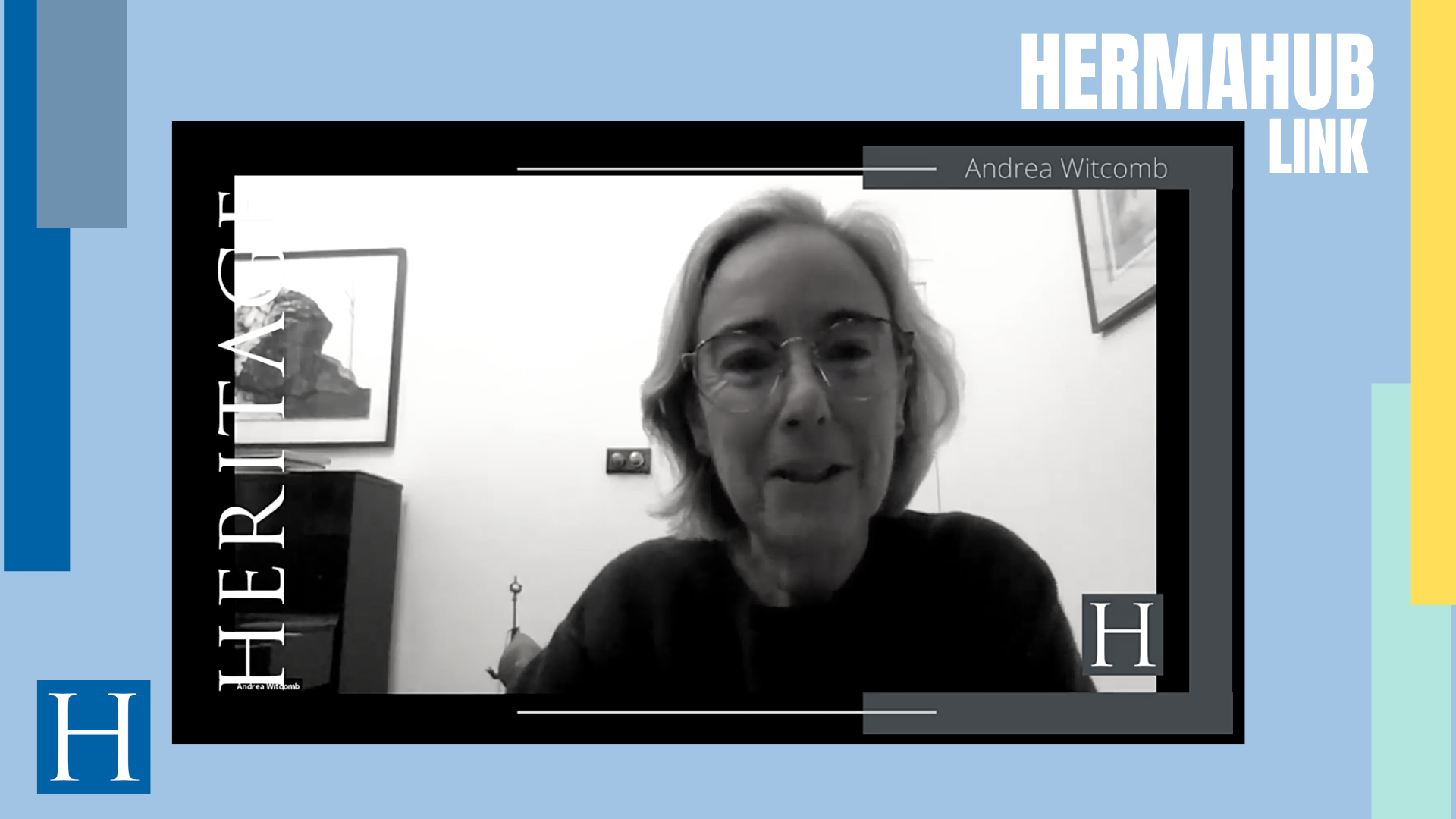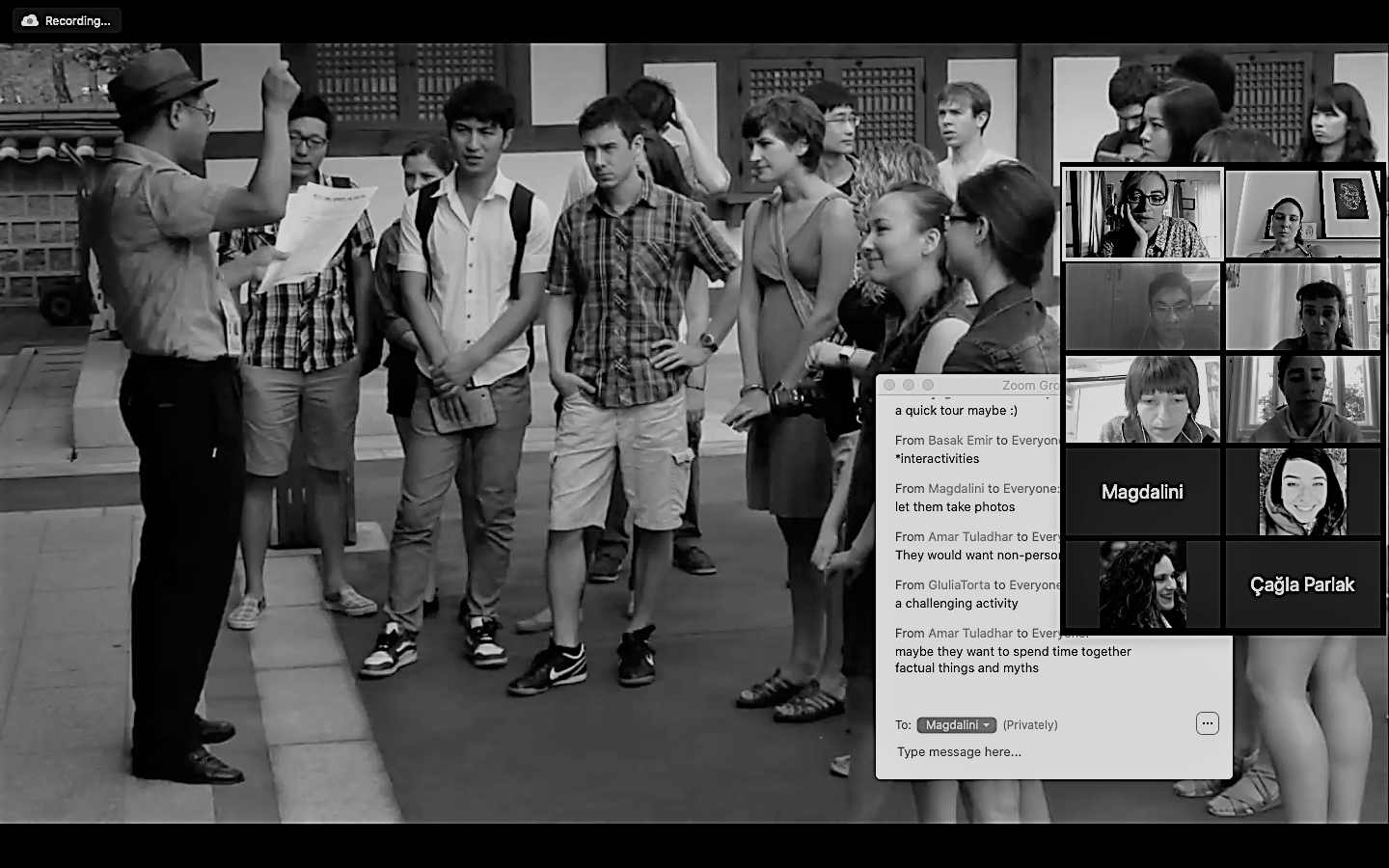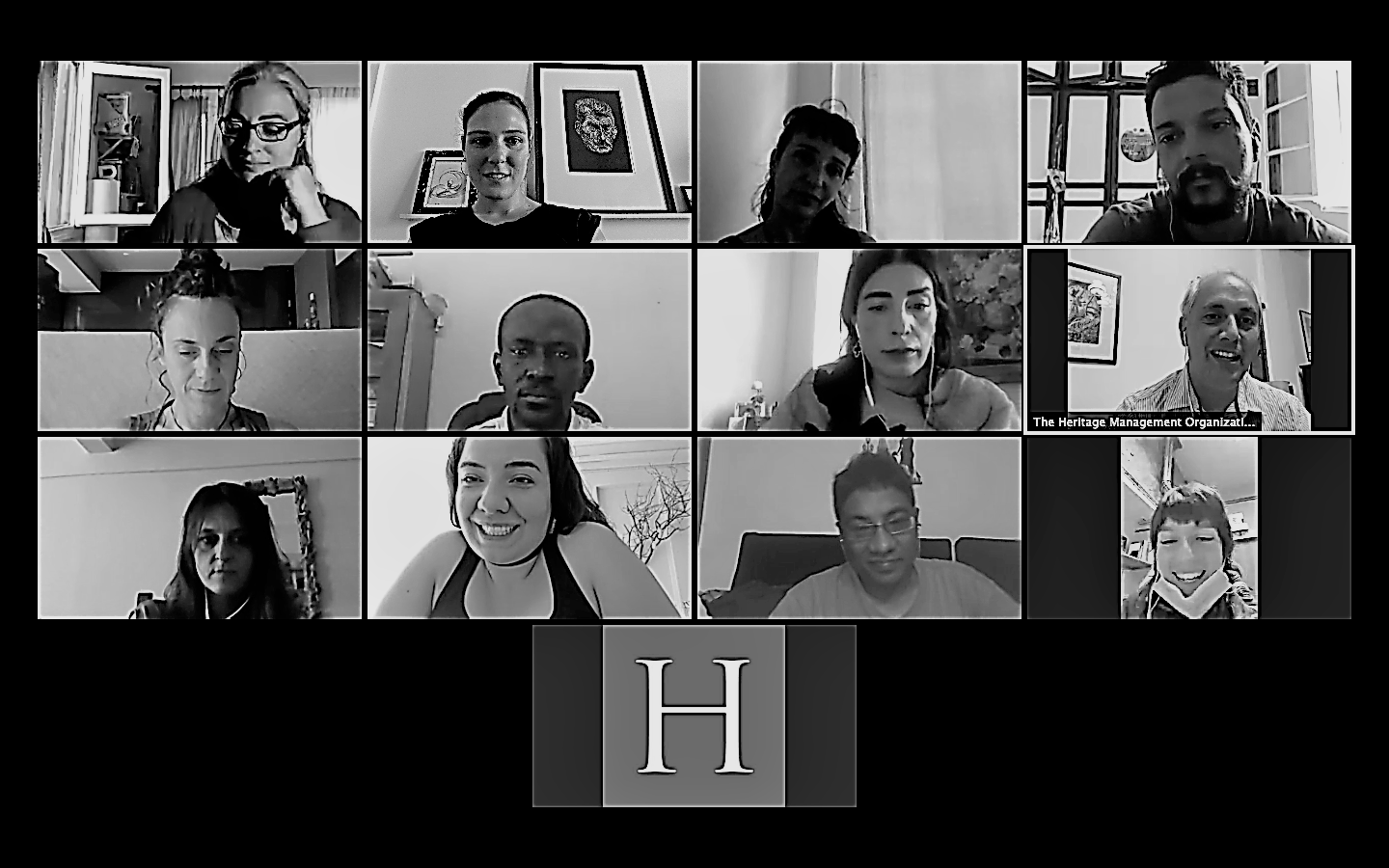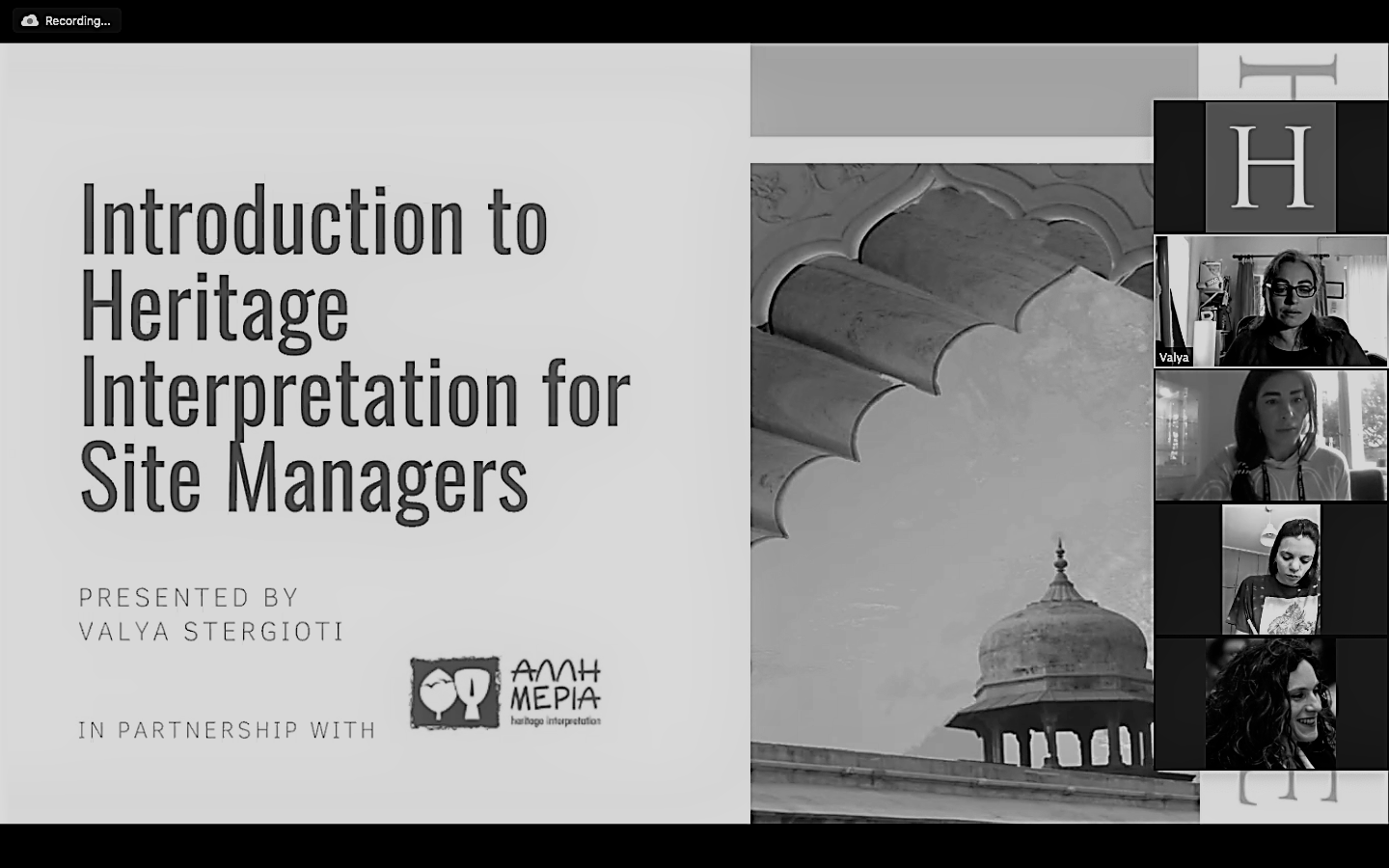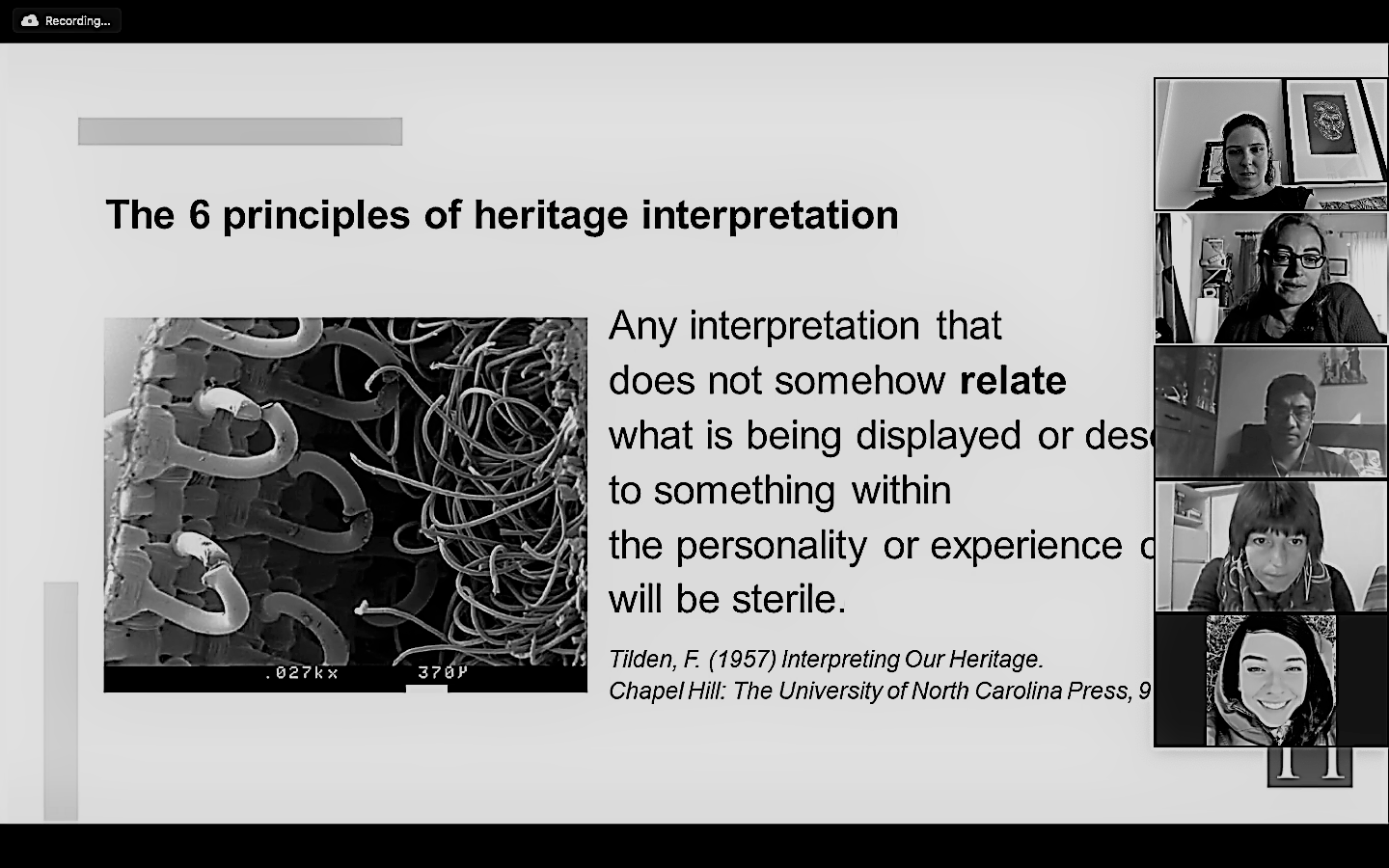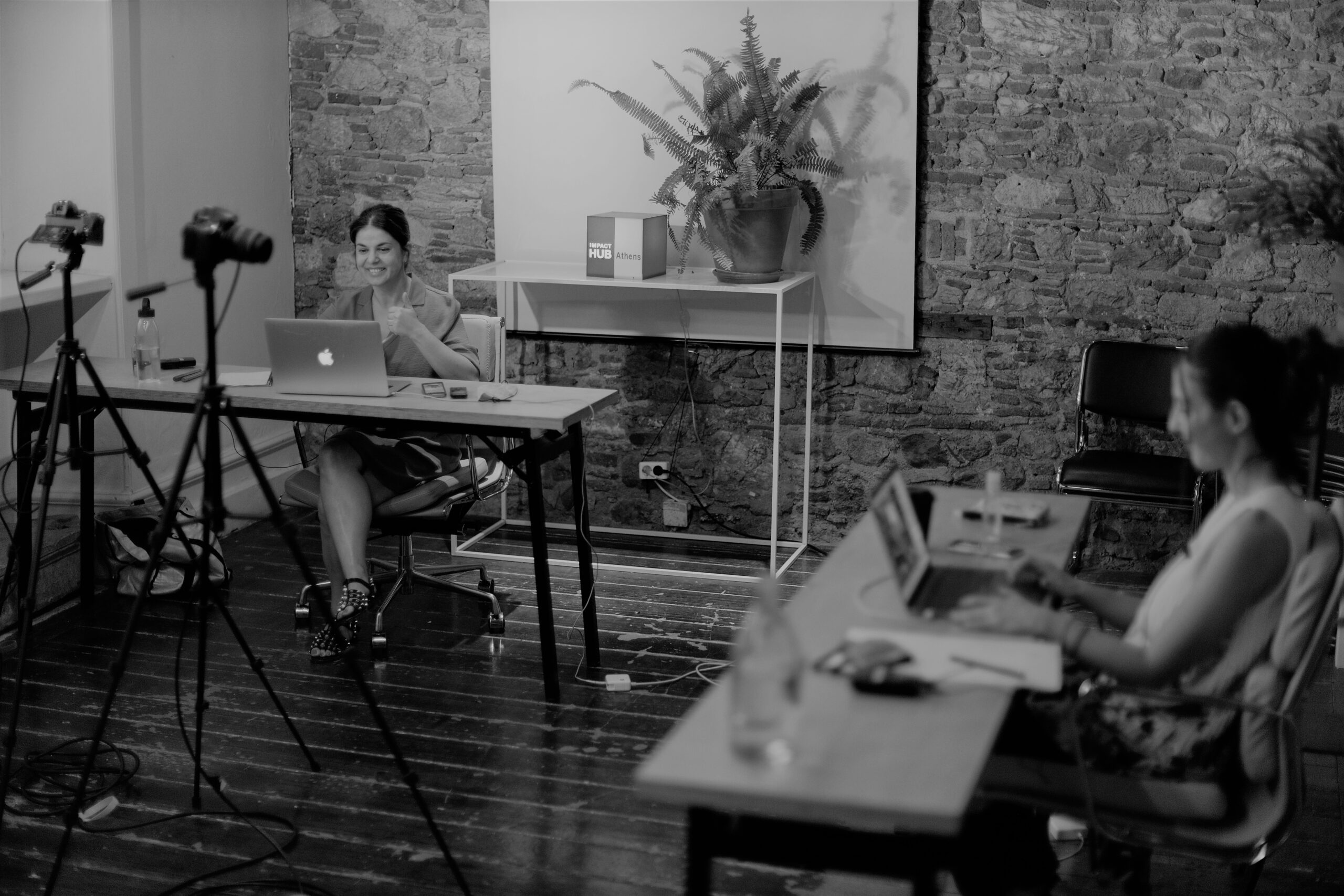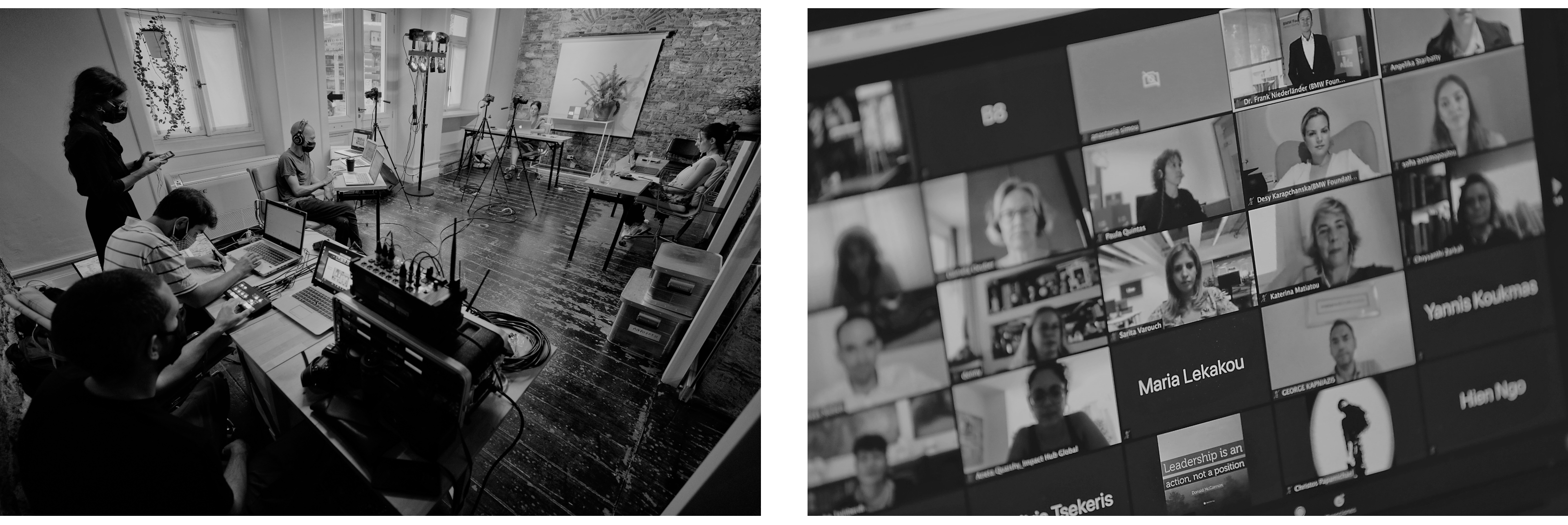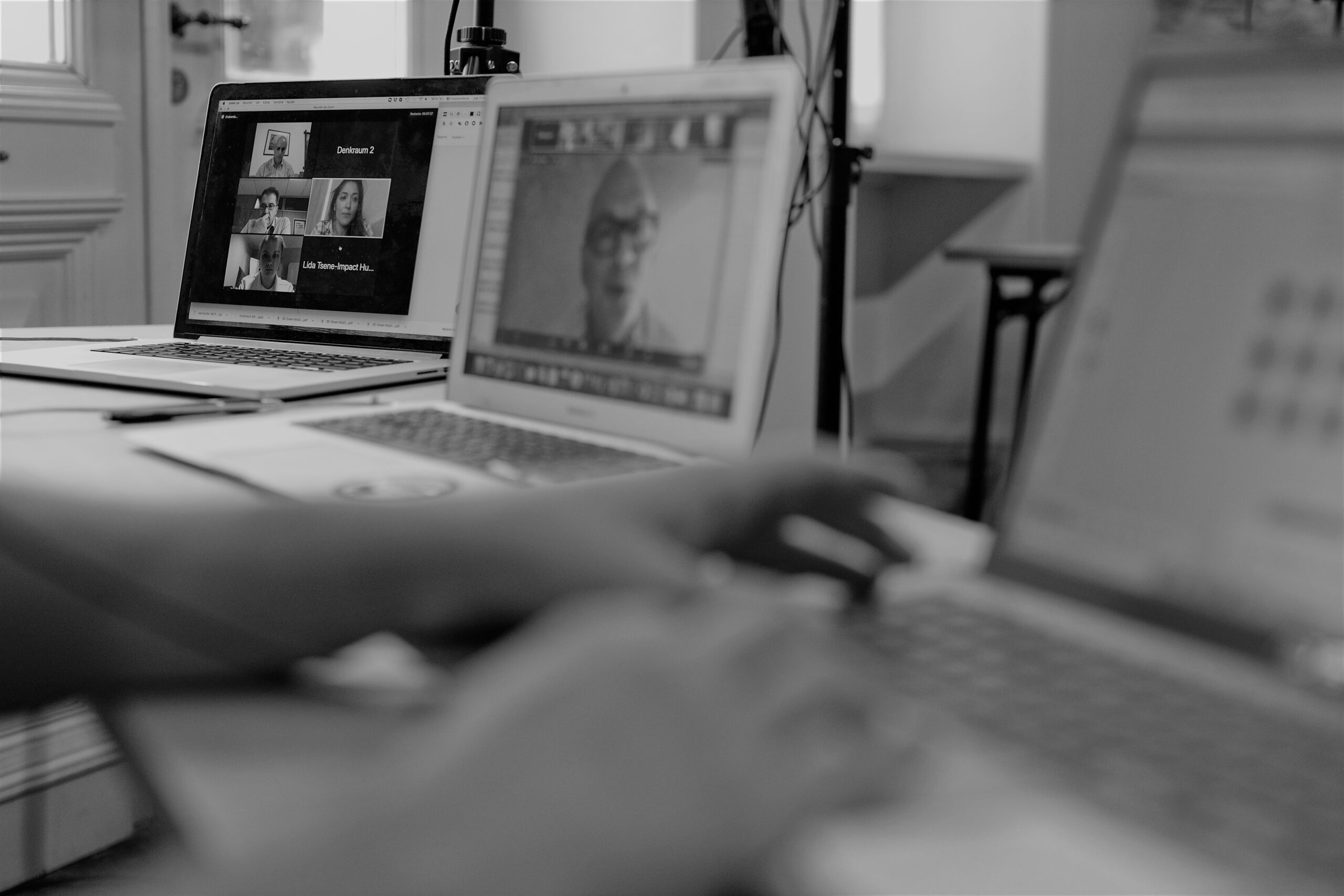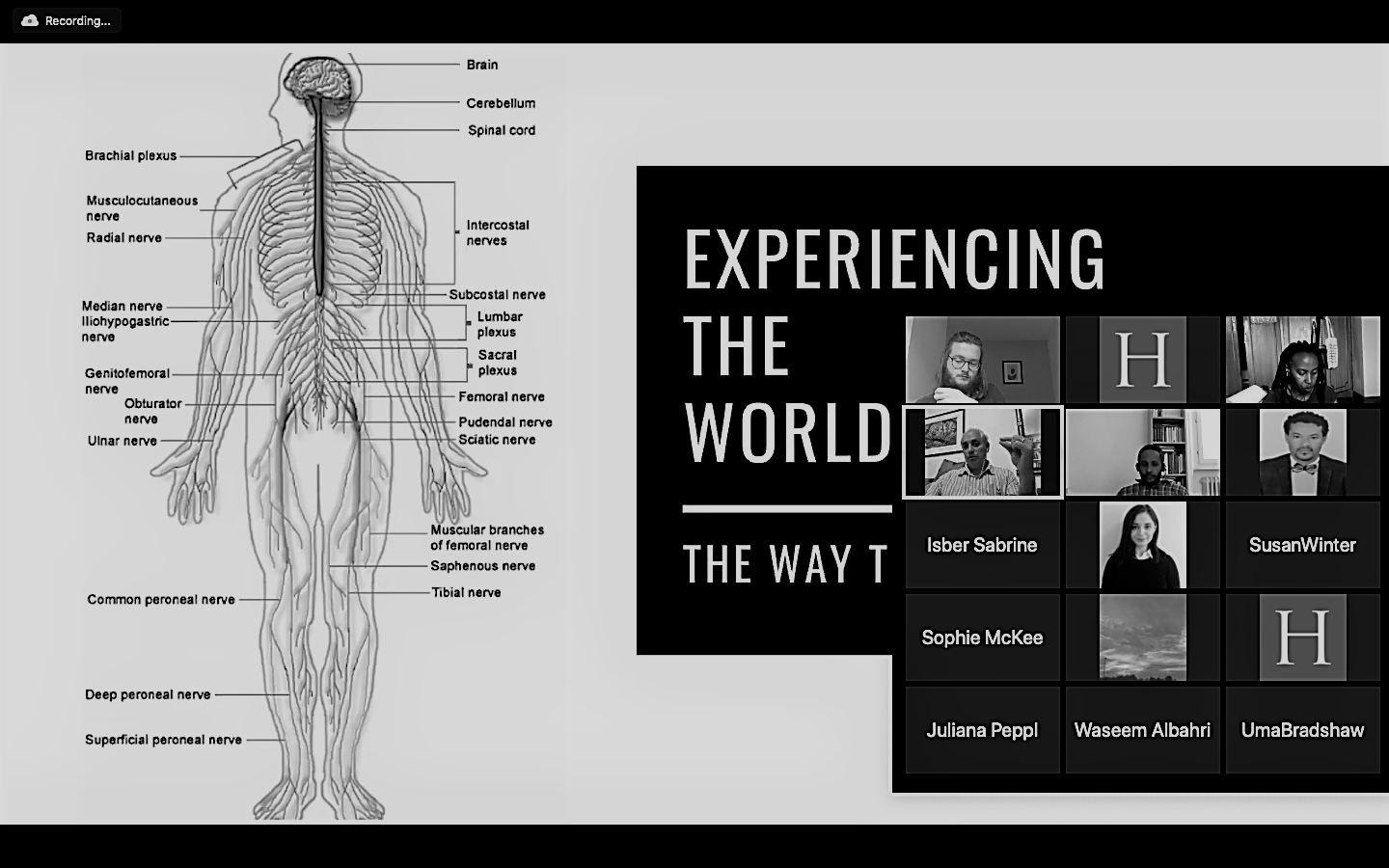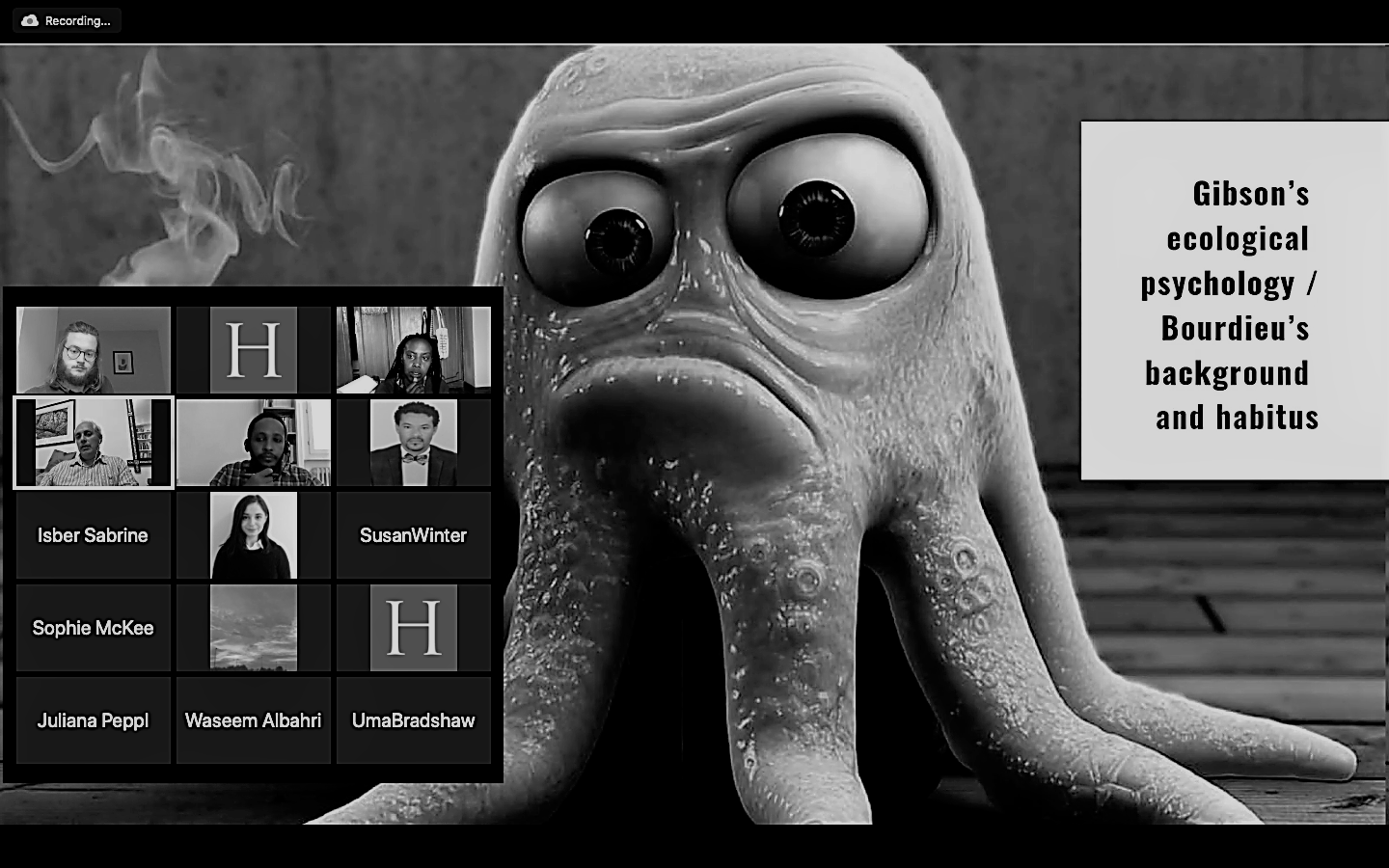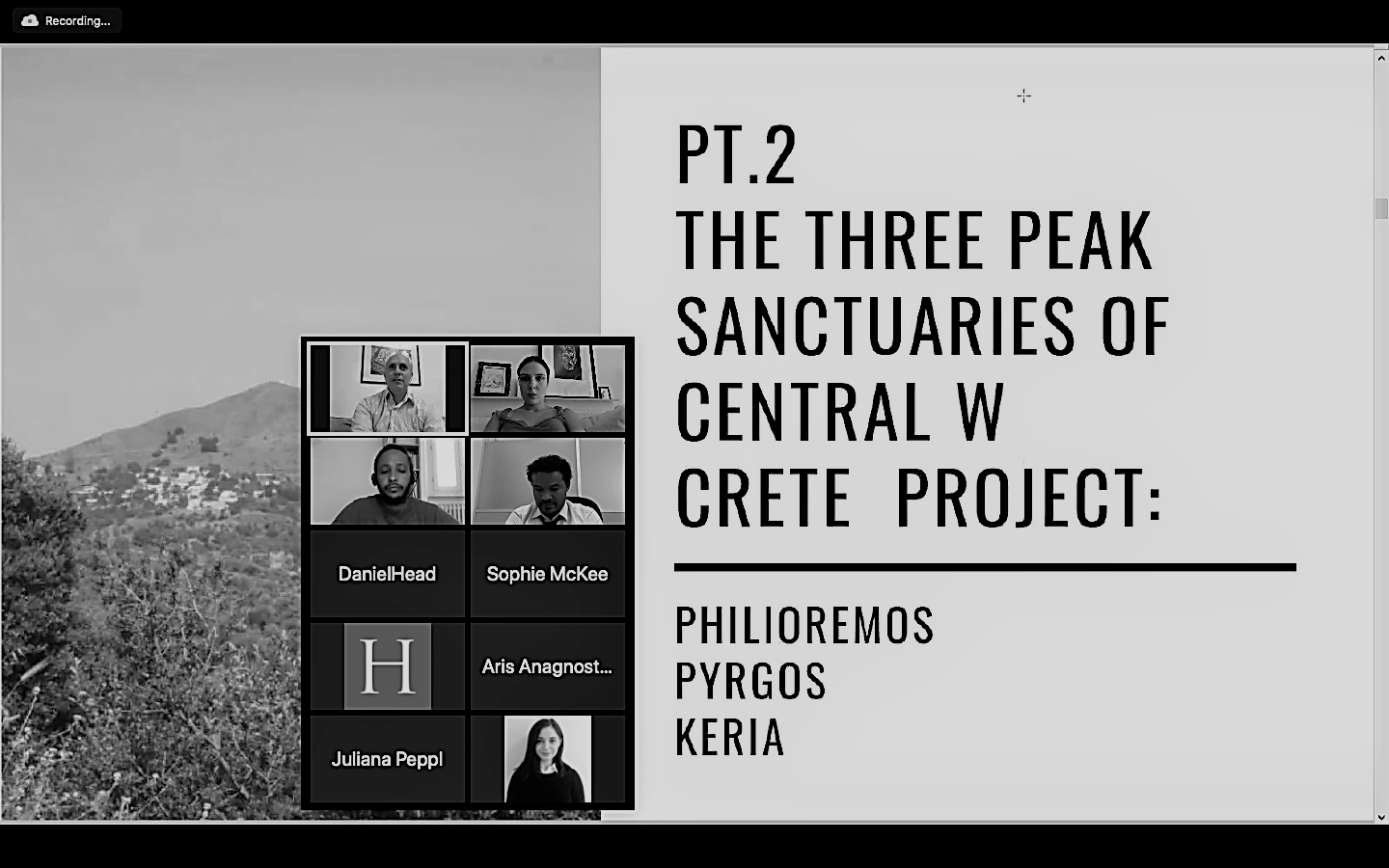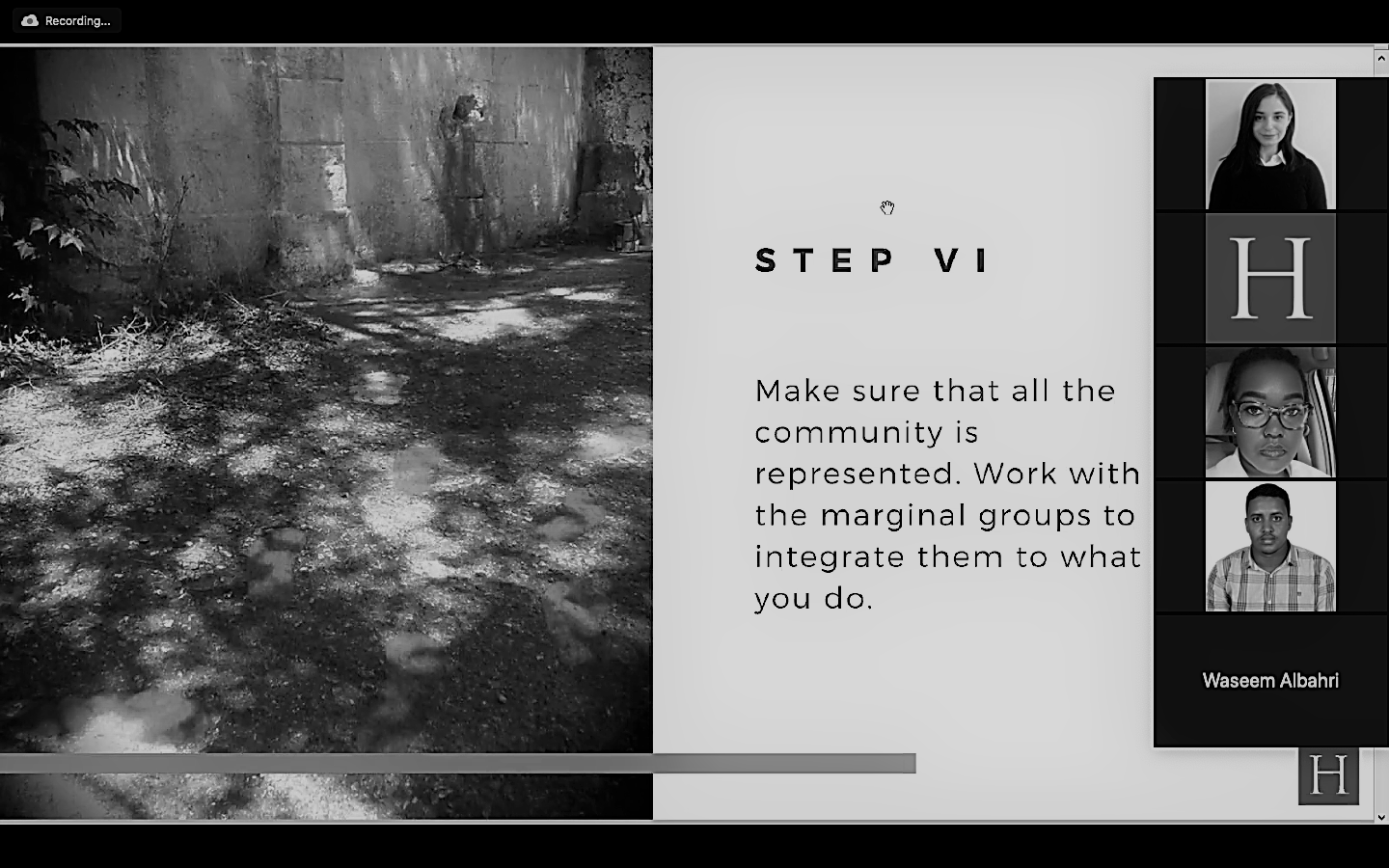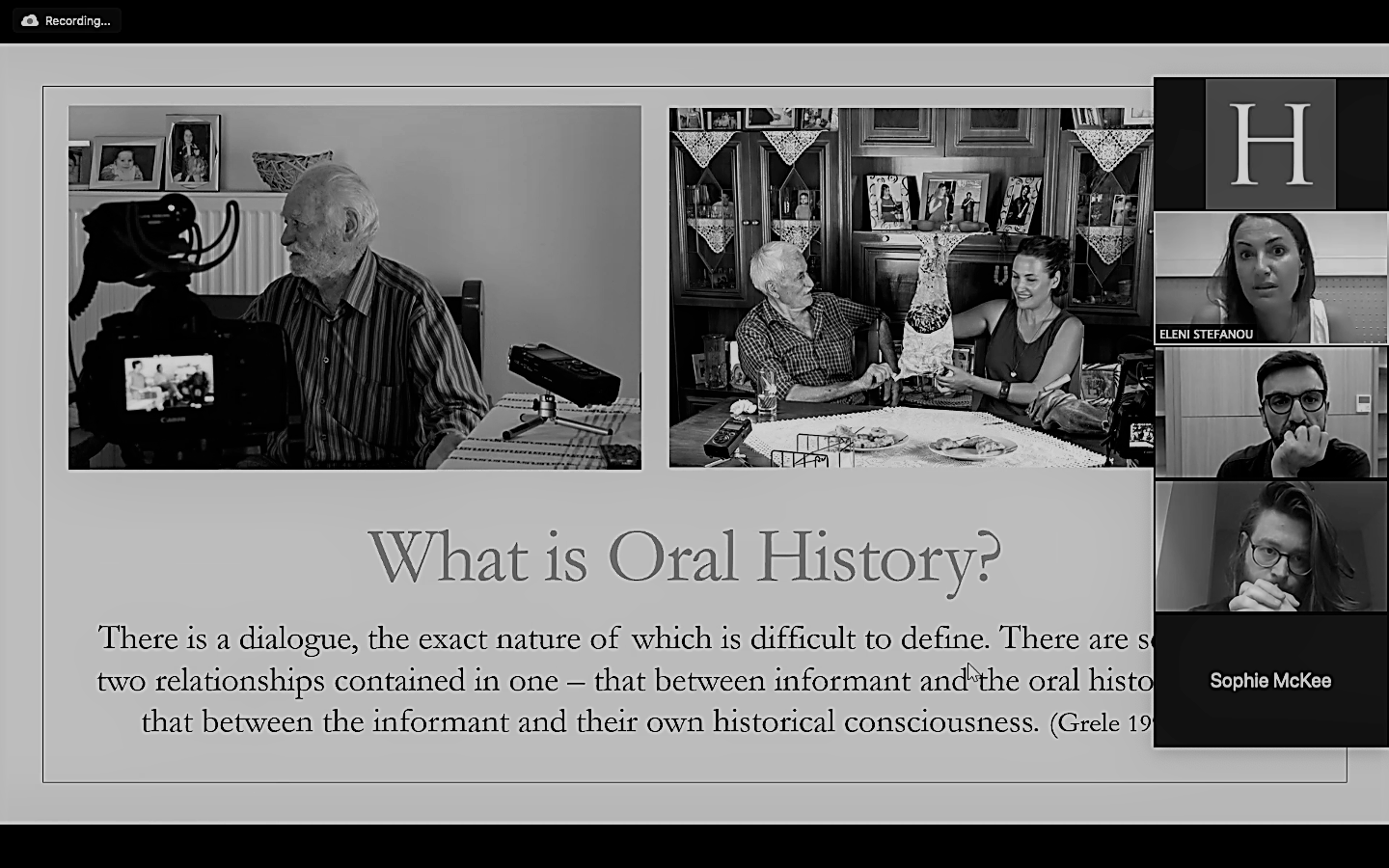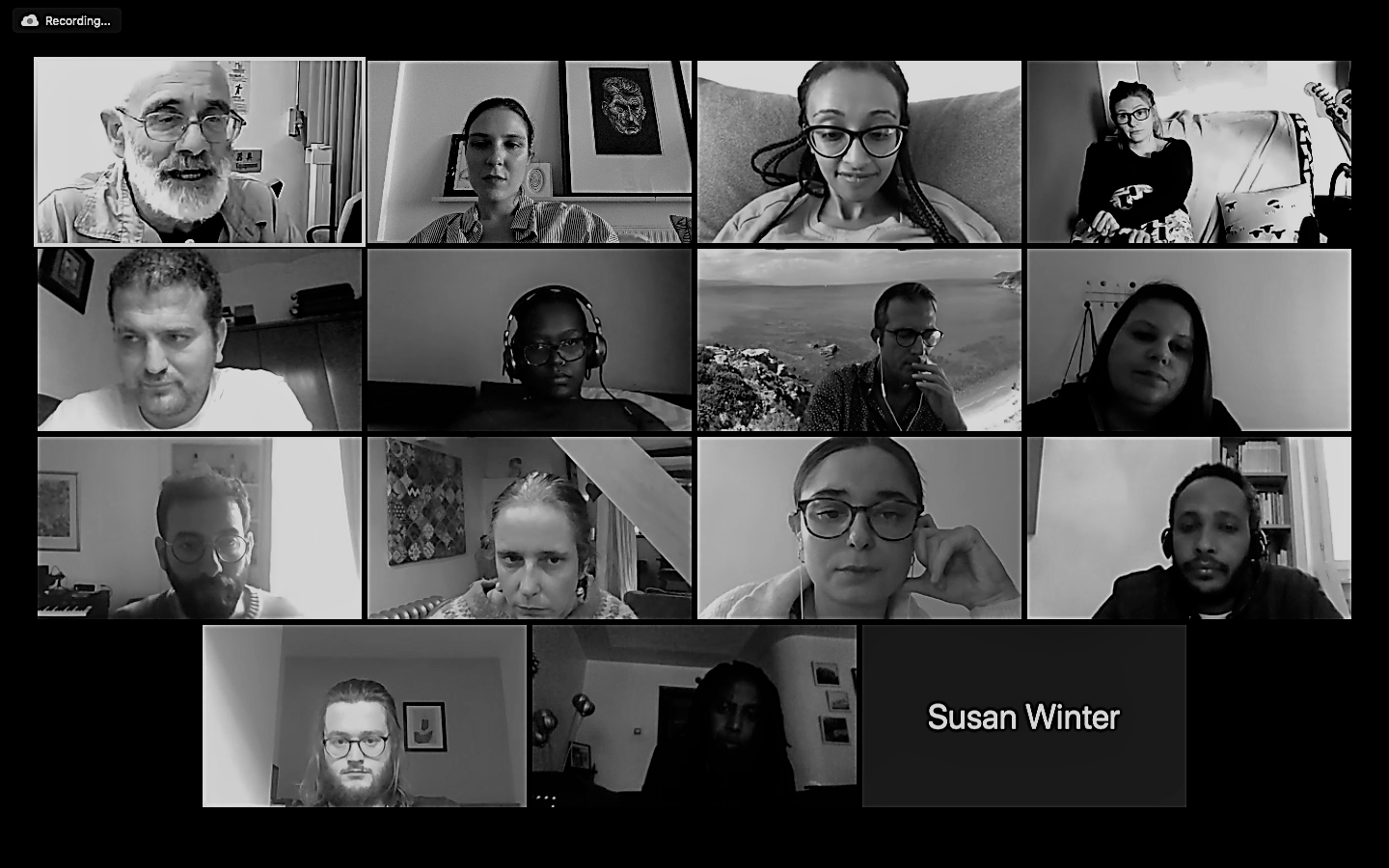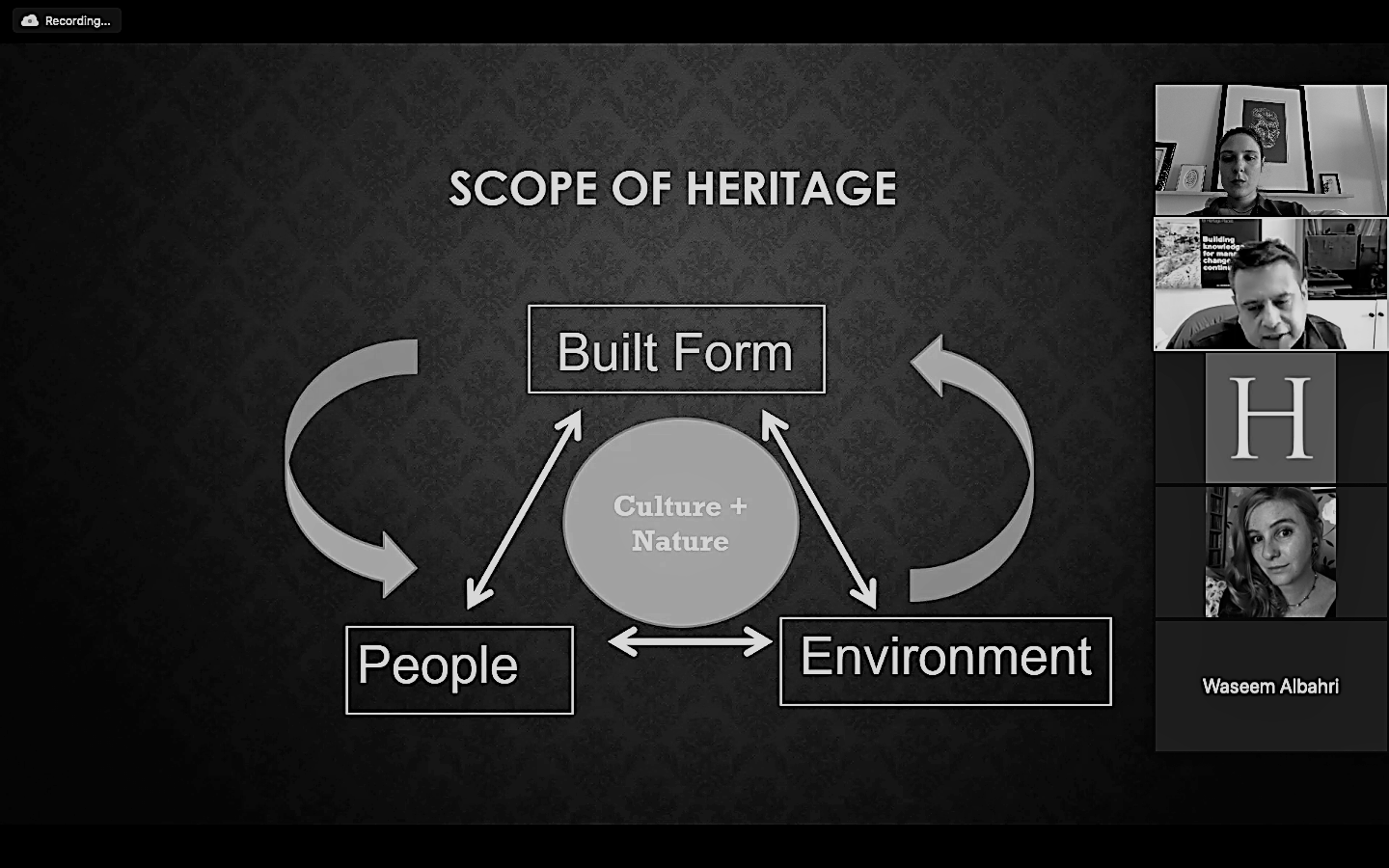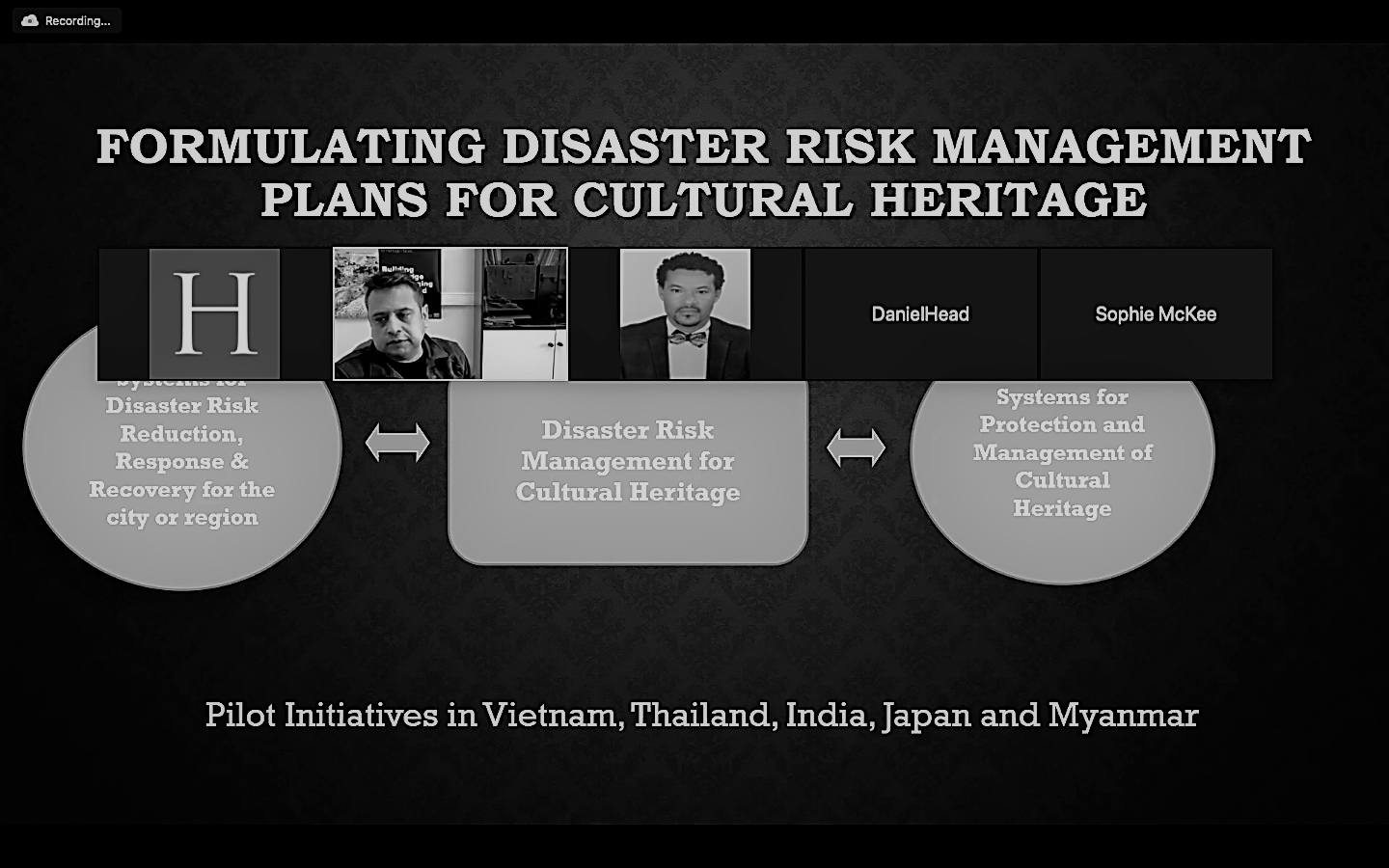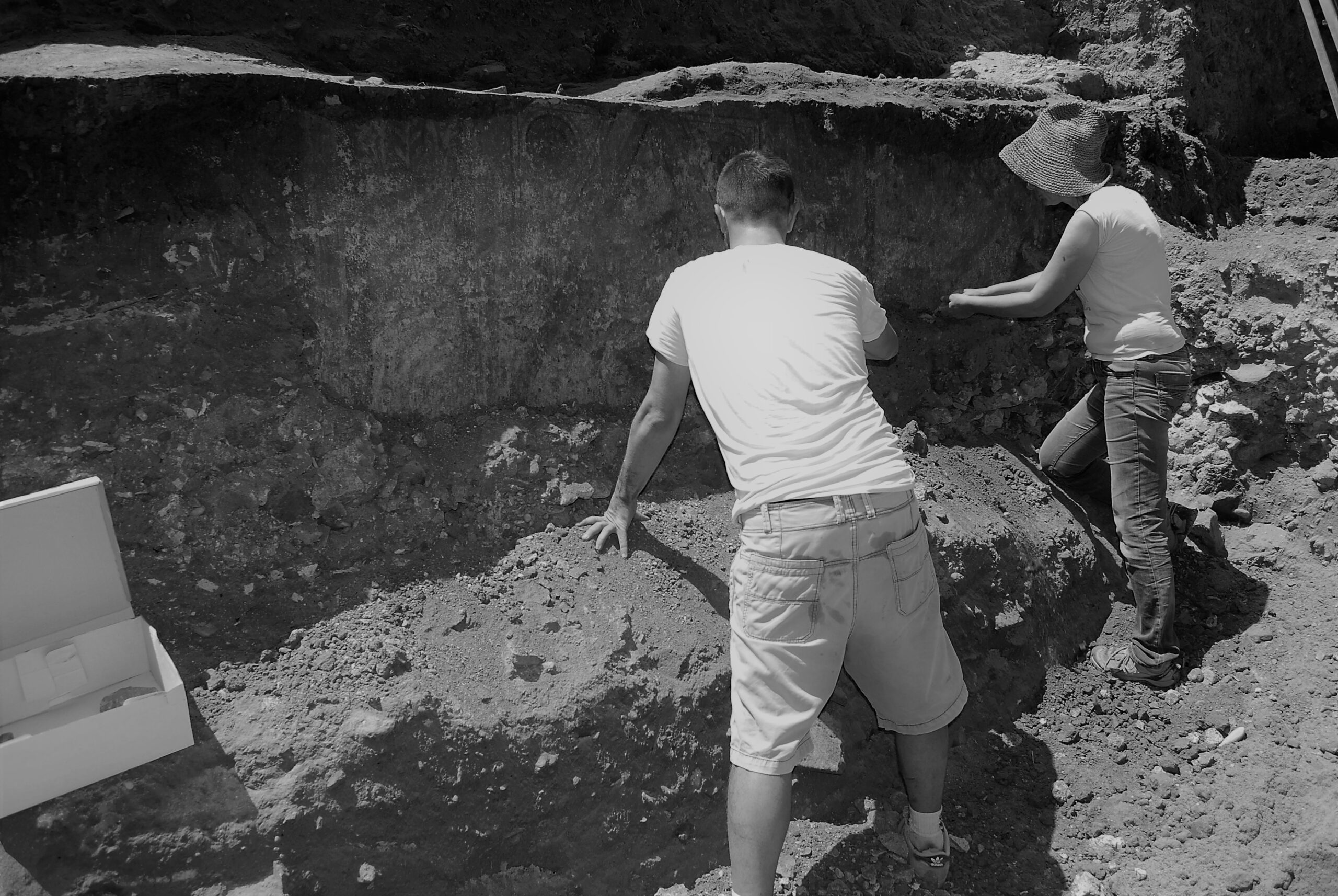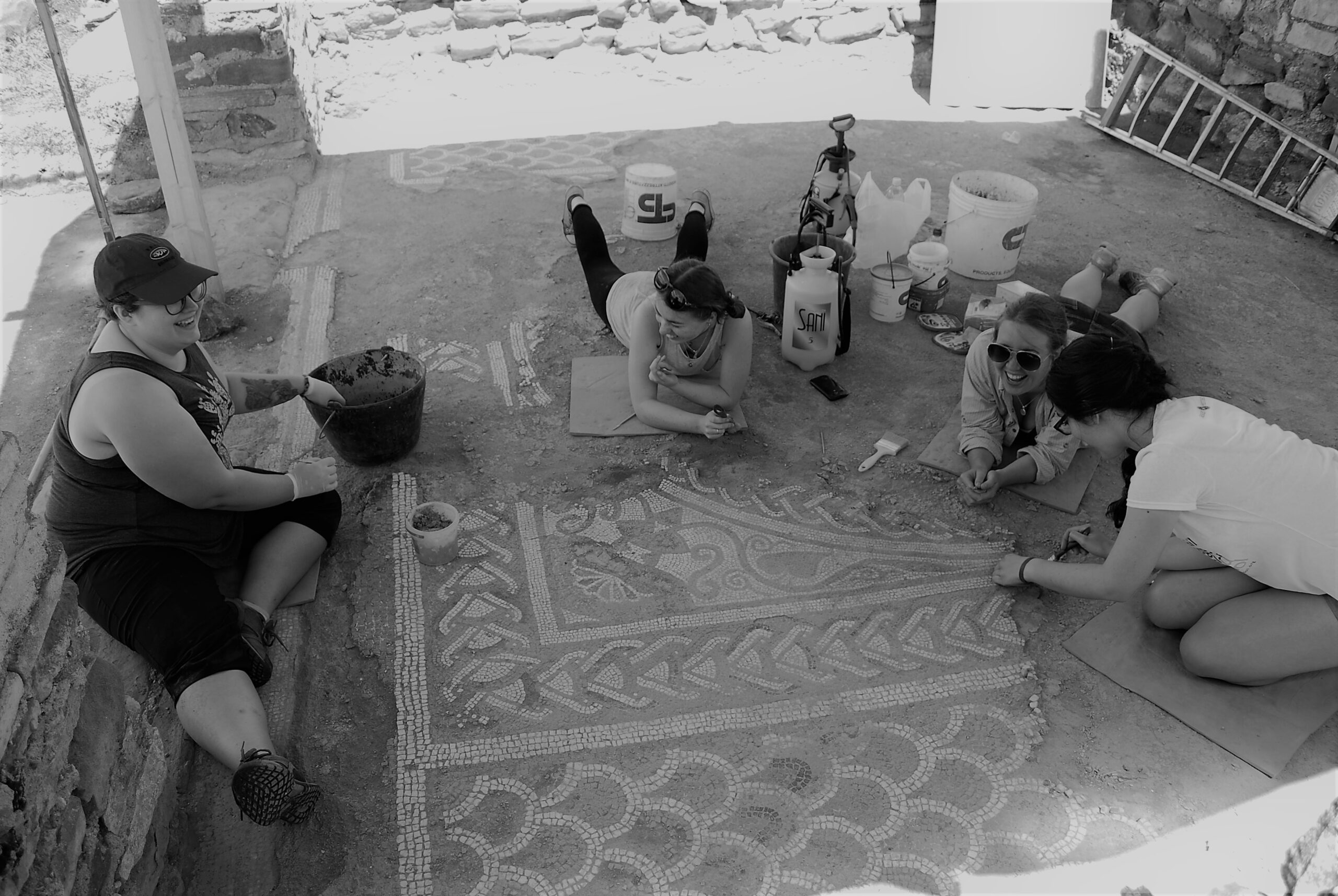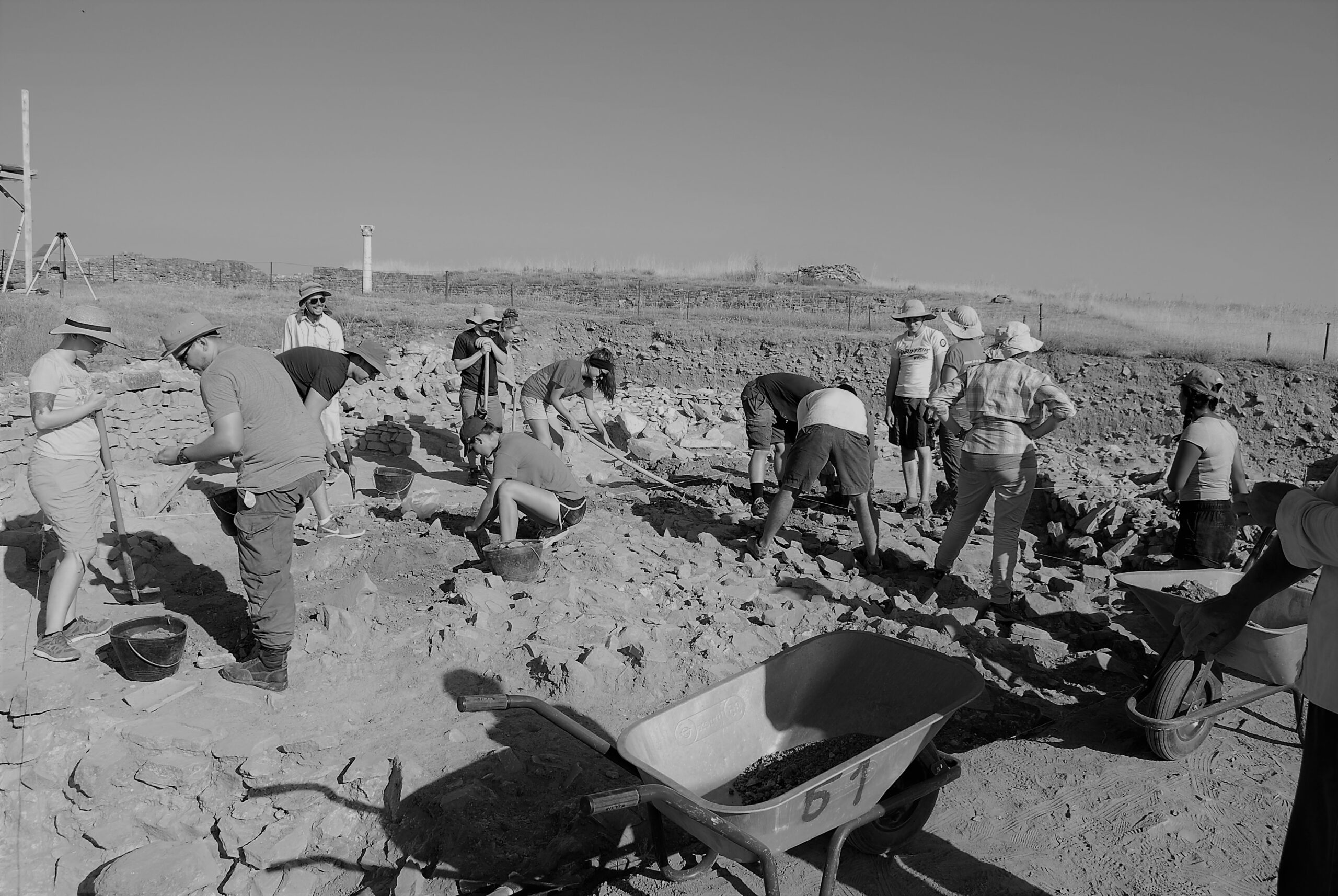: Uncategorized
"Project Management for Heritage Managers" online workshop
The workshop on “Project Management for Heritage Managers” took place from 09 to 11 December 2020.
11 heritage managers from Africa (Rwanda, Gambia, Kenya) and Europe (Finland, Greece, UK) have been trained in project management techniques for running a successful project from inception, through the planning and implementation phases to closure. Through exercises and group work participants understood how to make sure they get their project completed on time, to the quality desired, and within budget, by proper planning and tight control. By the end of this training participants have learnt all the skills necessary to become a well-organized project manager.
The workshop was conducted by Tim Healing, who has over thirty years’ experience working as a project manager and has a professional background in project management, community and NGO development. He specializes in the coordination and support of cultural heritage and community based social action projects in the Middle East, North Africa and Central Asian regions.
HerMa HUB LiNK: Fostering Communities II
Building the ground for the future of community engagement
Why is the relationship between institutions and communities a fundamental one? How can institutions successfully develop participatory initiatives of community engagement? At our online roundtable “Museums, Cultural Organizations and Community Engagement”, which took place on Saturday 5 December 2020, 8 academics and practitioners with long experience in working with communities around the world, shared their projects and thoughts with a large audience from Greece and abroad, highlighting strong parallels, as well as unique differences that arise in community engagement practices in global and local contexts.
Eleni Stefanou
“Theory and practice worldwide is now moving beyond the logic of outreach from the institution to the public, and turns its scope to increased participation of social groups and local communities in the design and implementation of exhibition practices and cultural heritage strategies.”
Eleni Stefanou, Archaeologist-Museologist, Hellenic Open University, MSc Management of Cultural Organizations, HERITΛGE Public, opened the digital discussion with a welcome speech, highlighting the importance of seeking local answers to the global and timely question of working for or with the public, in relation to our ethical responsibility as culture and heritage professionals towards the people directly implicated in our projects.
Marlen Mouliou
Marlen Mouliou, Museologist and Assistant Professor at the National and Kapodistrian University of Athens, was the first to discuss about community engagement, underlining the importance of connecting and creating a digital community around Museums.
See more here.
Rolf Hapel
Rolf Hapel, Affiliate Instructor at the Information School of the University of Washington and former director of Citizens’ Services and Libraries and City Librarian in Aarhus Library, provided significant insight on how to build communities at Public Libraries.
See more here.
Elgidius B. Ichumbaki
Elgidius B. Ichumbaki, Lecturer at the Department of Archaeology and Heritage Studies of the University of Dar es Salaam, described the role of heritage institutions in fostering community engagements in Tanzania.
See more here.
Lejla Hadzic
Through the example of Cultural Heritage without Borders Albania, Lejla Hadzic suggests that conservation practices should be inclusive, empowering and equitable processes of encounter for everyone, in order to restore and build relations.
See more here.
Gai Jorayev
Gai Jorayev, Research Associate, Institute of Archaeology, University College London, explained how to grow influence of the digital platforms and improve connectivity to achieve higher levels of community engagement.
See more here.
Aris Anagnostopoulos
Aris Anagnostopoulos, Honorary Lecturer University of Kent and HERITΛGE Public Director, was moderating the discussion, feeding the conversation with his valuable input and participants’ questions.
See the general discussion here.
Andrea Witcomb
Professor Andrea Witcomb, Faculty of Arts, Deakin University, Melbourne, gave an inspiring closing speech and provided strategies for inclusion, asking us to think about how we represent communities in our museums.
Listen to the closing speech here.
"Introduction to Heritage Interpretation for Site Managers" Online Workshop
The Heritage Management Organization (HERITΛGE) organized a 3-day intensive online workshop from 2 to 4 October 2020 on “Introduction to Heritage Interpretation for Site Managers”.
10 heritage managers from Nepal, Iran, Turkey, Tunisia, Gambia, Greece and Italy have been trained in heritage interpretation, making visitors’ experience meaningful and unforgettable. Through interactive exercises, group work, presentations and discussions, participants learned how to turn phenomena into experiences, provoke resonance in visitors of heritage sites, offer paths to deeper meaning and foster respect for all heritage, as well as how to give and receive feedback to and from their peers.
The workshop was conducted by Valya Stergioti, a freelance interpretive trainer and planner. She has more than 20 years of experience in organizing and implementing interpretive workshops about heritage for adults and children. She works in collaboration with different NGOs and other institutions all over Greece and has more than 10 years’ experience in adult training.
Denkraum Athens: Re-imagining the future of sustainable cities
Denkraum: Sustainable Cities & Good Life, occurred in Athens from 6th of 9th of October organised by BMW Foundation Herbert Quandt & Impact Hub, in collaboration with Impact Hub Athens, Impact Hub Madrid & Amsterdam.
Combining digital & physical presence and together with distinct voices, Impact Hub Athens assembled a network of mindful individuals to co-inspire solutions for the current challenges in the domains of electric mobility, waste management, green infrastructure and zero emissions, investments in sustainability and resiliency in culture and built heritage.
Spaces of the City Fabric from the Heritage Management Organization
Athens City centre, especially after the multiple crises of the past few decades contains many derelict buildings, representing an architectural style that is unique in Greece. The Heritage Management Organization, owner of this challenge, represented by Evangelos Kyriakidis and Ioannis Trohopoulos, the discussion facilitators, directed thinking towards awareness of the issue and solutions for the use and financial development of derelict cultural heritage buildings in Athens.
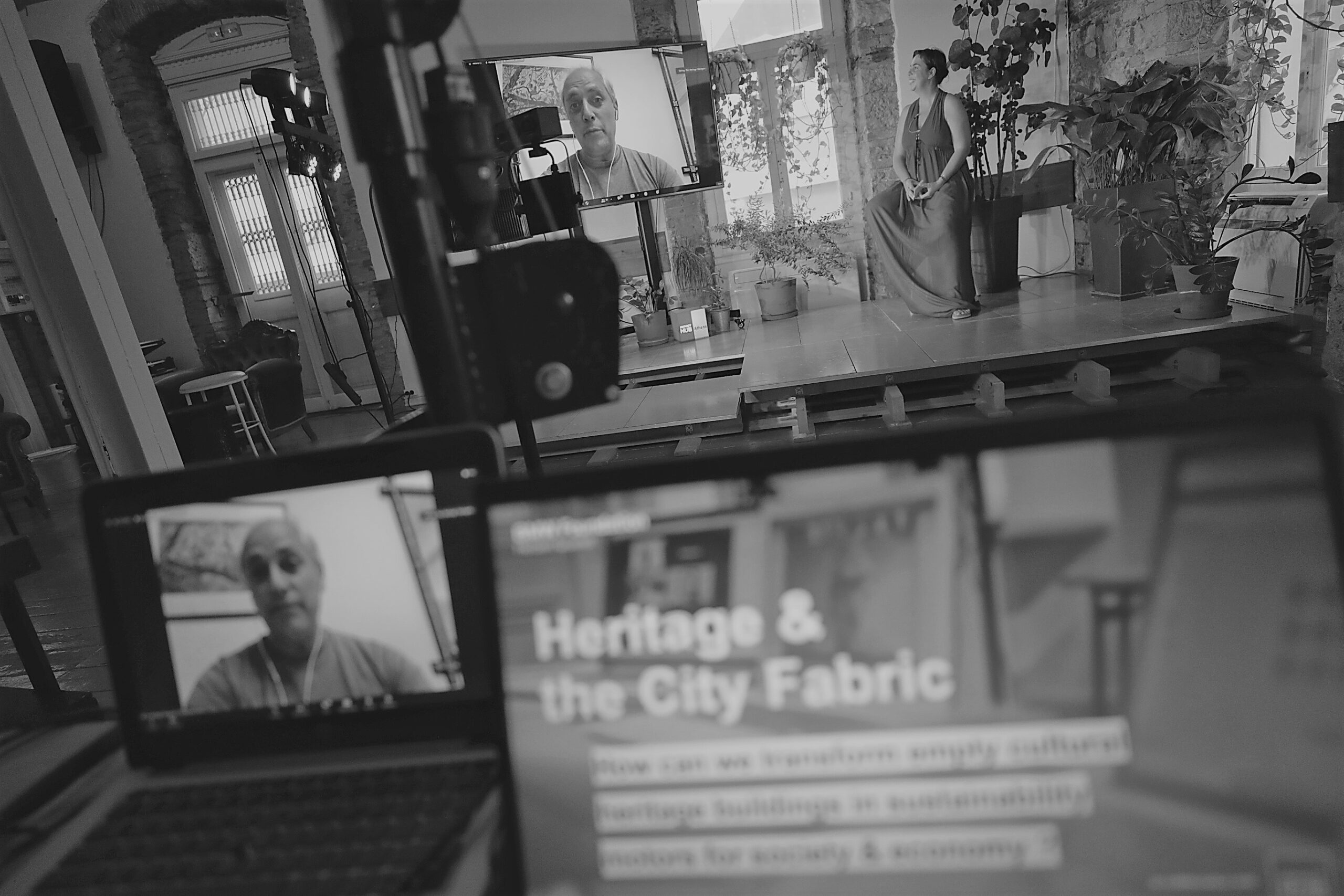
The deep dive and discussion proposed the creation of a registry of buildings and their potential uses, dissemination of information about them at the local level, and working together with local agents in the decision-making process for the buildings’ restoration and development.
Denkraum is a series of events organized by the BMW Herbert Quandt Foundation that first happened in 2016 in Munich. It strives to be a forum where influential local leaders are not only called to reflect upon modern challenges but also to propose realistic solutions and finally have an impact in creating a sustainable future for their communities. The Foundation cooperates with Impact Hub in several places in Brazil, Africa and Europe. The 2020 series, titled “Good Life & Sustainable Cities”, includes hybrid (virtual and live) events in Munich, Amsterdam, Athens and Madrid. The Athens-based event took place during the first week of October.
Read the full report here.
British Council Cultural Protection Fund Workshop on Heritage Management
The Heritage Management Organization (HERITΛGE) in collaboration with the British Council’s Cultural Protection Fund in partnership with the Department for Digital, Culture, Media and Sport organized a 8-day workshop, with 11 meetings in total, to train 22 heritage managers of British Council staff and collaborative network in heritage management; engaging of local communities; heritage, risk and climate change; disaster management. The online workshop on “Heritage Management” took place 5 – 20 October, 2020. Distinguished in their field professionals and academics conducted the various specialist courses.
Course 1
Dr Evangelos Kyriakidis, fsa, Senior Lecturer in Aegean Prehistory at University of Kent, Canterbury and Director of HERITΛGE.
Introduction to Heritage Management
In this short workshop we go through the main element of what we manage: heritage values. Heritage values for the same piece of heritage are fluid, they change from person to person and through time, so much so that it is hard to talk about communal values, or shared values. We look at the main ways that values are constructed or are changing and we explore a little more the values of a piece of heritage we care about.
In the second part of the workshop we discuss outstanding universal values. This is a UNESCO introduced concept that can be very useful for any piece of heritage. Through this part of the workshop we aim to give confidence to heritage managers so that they understand the importance, the relevance and the functionality of the heritage they manage for the benefit of their constituencies. The relevance of the values of their heritage is a very important concept that can be liberating for heritage managers, not only in that they will quickly understand the ways to discuss their own heritage, but also ways to promote it and engage with multiple stakeholders in the management of local heritage.
Course 2
Dr Aris Anagnostopoulos, Honorary Lecturer at University of Kent and Public Director at HERITΛGE.
Dr Lena Stefanou, Cultural Organizations Management MSc at Hellenic Open University and Public Officer at HERITΛGE.
Community Engagement
Community engagement gradually becomes a mainstay in the public programs of heritage institutions worldwide. A variety of methods and good practices have been developed to successfully engage the bewildering variety of communities and publics that such institutions address. Still, the uncritical application of “toolkits” for effective engagement is perhaps not the ethically appropriate way to incorporate cultural difference in the field. In this online program, we aim to develop a different approach to community engagement, that is based on social (and art) research with community-led initiatives. Research-led practice can lead to collaborative design and collaborative actions that are better suited to the cultural and social particularities of each milieu and each specific group or community and its relation to others. This course draws from our long experience with community engagement through heritage and will discuss several examples from our own and other work.
During the course, participants will familiarize themselves with the context of community engagement through heritage, will discuss methodologies based on ethnography and oral history and will engage in practical exercises. The duration of the online course is three days, with six meetings in total, and enough time to complete assignments in between online meetings.
Course 3
Dr Peter Brimblecombe, Distinguished Research Chair Professor at Department of Marine Environment and Engineering, National Sun Yat-Sen University, Kaohsiung, Taiwan. Aerosol Science Research Center, National Sun Yat-Sen University, Kaohsiung, Taiwan.
Adjunct Professor at School of Energy and Environment, City University of Hong Kong. Emeritus Professor at School of Environmental Sciences University of East Anglia Norwich, UK.
Climate Change, Heritage and Risk
This course seeks to introduction students to the way in which weather, air pollution and climate change can affect our tangible heritage. It will distinguish the normal effects of weathering from those imposed by a changing climate or shifts that occur through air pollutant management. A sense of scale is important, so it is necessary to consider the individual materials that constitute heritage and the way the physical effects of weathering or corrosion and blackening by pollutants affects the artistic and evidential value; through to likely impacts on sites and the landscape that surrounds them. Climate change may particularly affect the context of heritage and the way visitors experience it. In a changing world, careful maintenance, stakeholder engagement and strategic planning become ever more important.
Course 4
Dr Rohit Jigyasu, Project Manager, Urban Heritage, Climate Change & Disaster Risk Management, Programme Unit
(2018-2020) at ICCROM and Vice President (2017-2020) of ICOMOS.
Disaster Management
Cultural heritage is increasingly vulnerable to disasters caused by natural and human induced hazards such as earthquakes, floods, fires, terrorism, looting etc. Climate Change has further exacerbated the frequency and intensity of disasters. Therefore, it is important to build the capacity of heritage institutions as well as well those who support disaster response and recovery so that they can take adequate decisions for pre-disaster mitigation and preparedness,
emergency response and post disaster recovery. This also requires understanding of the methodology for undertaking a multi-hazard risk assessment for prioritizing various actions.
Moreover, it is crucial to identify various stakeholders and ensure better coordination between heritage and disaster risk management sectors. The workshop aimed at raising awareness of the participants on the key principles and methodologies for managing disaster risks of cultural heritage sites and institutions.
Network Stories: Silvana Blazevska
Describe your organization and the unique work that it is doing. Who and what are affected by the work? How does/will the work impact people’s lives?
I am currently working at the National Institution Stobi (NI Stobi) as an archaeologist-senior curator. I graduated art history and archaeology at the Skopje University where I received my Phil and PhD in Classical Archaeology.
I was involved in the foundation of NI Stobi and I held the position of director between 2008 and 2017. This unique institution is responsible for management of the archaeological site Stobi, the best preserved ancient city from Roman and Late Antique periods in the R. of North Macedonia. The institution was created in 2008 by a governmental decision as an in depended institution under the Ministry of Culture with the main goal to provide overall research, protection, monitoring, proper preservation and presentation of the site of Stobi. NI Stobi has three departments: museum, conservation and administrative department with more than 30 permanently employed people with various fields of expertise.
The creation of NI Stobi was of crucial importance for development of the site in many aspects. For the first time in 100 years of explorations of Stobi, the activities regarding excavations, conservation, maintenance and presentation of the site were well planned and focused on the main goal: to provide the best protection and opportunities for sustainable development. During the process, we faced, and we are still facing many challenges: neglected site, limited human resources and especially experts for conservation, limited funds and rigid legislative regarding cultural heritage protection.
The creation of NI Stobi affected in positive way not just the site, but also people involved in various projects. Many young archaeologists and students of archaeology, art history, architecture and arts received training in field work during many excavations and conservation projects. Many of them continue to develop their skills and careers at Stobi or in other institutions. In the last 10 years Stobi became worldwide recognized site where students are offered basic practice in archaeological field work, including advanced methods in documentation and conservation of mosaic and ceramic finds, through summer schools and workshops organized in cooperation with Balkan Heritage Foundation from Bulgaria, various universities in the USA and Canada and Institute for Field Research.
NI Stobi and the projects affected the local communities in the vicinity. Each year many people are engaged on the projects, maintenance and presentation of the site. Local economy benefited from our work, especially surrounding municipalities, due to improved presentation of the site, which attracts more tourists in the region each year.
Tell us about a project that has benefited from the training you received from us? Why was the project important? Was there anything unusual or surprising about the execution of this project?
In cooperation with Balkan Heritage Foundation, NI Stobi received funds from J.M. Kaplan Foundation for creation of the Master Conservation Plan for the site. The plan aims to determine the general problems and risks that affect the site, priorities for intervention, and to propose the best strategy and conservation practice. The plan also includes strategy for fundraising and presentation in order to create favorable conditions for sustainable development. For that purpose, in February 2019, I attended the workshop organized by Heritage Management Organization: “Successful Fundraising for Heritage Managers: Strategies and Best Practices”. Both lecturers, Linda Hartley and Vivien Hoexter did excellent job in transmitting their knowledge in three days, to a group of people with diverse professional background and interest. On the other hand, it was an excellent opportunity to meet people and share knowledge and experience. I already had certain knowledge due to my previous training at the International Visitor Leadership Program for the Cultural Heritage Preservation organized by the USA State Department in 2012. Besides various issues, practice and policies for preservation of the cultural heritage, fundraising strategies and opportunities in the USA on various levels were also included in the program. The training in your organization supplemented and extended my previous knowledge on this topic.
The Master Conservation Plan is would be the first document of this kind created for archaeological site in our country, and I hope it will be applicable for other sites as well.
Has your organization worked on any other projects that are innovative, globally significant and can be replicated in a local market?
Our everyday work dedicated on protection of Stobi’s cultural heritage is globally significant. Actually, the model of National Institution Stobi was new and innovative, maybe not globally, but for sure within the country. The concept can be replicated on other world heritage sites of exceptional value in the region, especially where the established state system and network of institutions for heritage protection cannot provide overall protection, everyday monitoring and presentation due to great number of monuments under their jurisdiction. The established system at the NI Stobi, allows well organized and planned activities to avoid major problems in heritage protection such as discontinuity in the excavations and preservation, maintenance, proper presentation etc.
This model proved to be the best solution to address various problems regarding heritage protection and promotion and especially raising awareness for the importance of heritage and its preservation. The history and the heritage represent the main core of every modern society and it is important to use our best knowledge and resources to preserve it for future generations. We are focused on achieving this through our activities: guides who are telling the story of the ancient city of Stobi to the visitors, especially school children, through promotions of our projects on various media, through international field schools and workshops, through scientific conferences etc. The unique model of NI Stobi is already recognized in the region for its results and there is a noticeable difference at the site. In 2012 the site was on the World Monument Watch List and we use the opportunity to organize various activities to promote the importance for the heritage protection among the youngest population by their direct involvement in the workshop for making mosaics and paintings inspired by Stobi. Through game and fun, they learned why Stobi is important place. More events of this kind are the best for promoting the values of our cultural heritage.
What are the global issues that your project addresses (e.g., fighting climate change, preserving heritage and culture, promoting local participation)?
NI Stobi is trying to extend its activities on globally relevant issues. Few years ago we participated in the evaluation project regarding the impact of the climate change on the cultural heritage as one of the case studies. We manage to turn the attention of the responsible entities in the country. Daily monitoring and records of the changes on the Stobi’s heritage are important for determination of the risk factors and subsequently the action plan for prevention. Many of the determined risks: flooding of the river Crna, air pollution, and various problems induced by climate changes etc., should be supplemented by scientifically based analysis, which is our further focus of interest. Due to limited resources we should seek for partnership with experienced foreign institutions.

